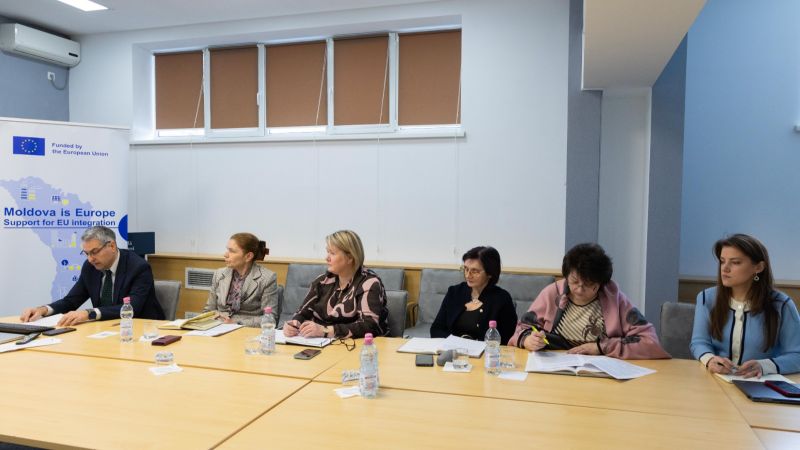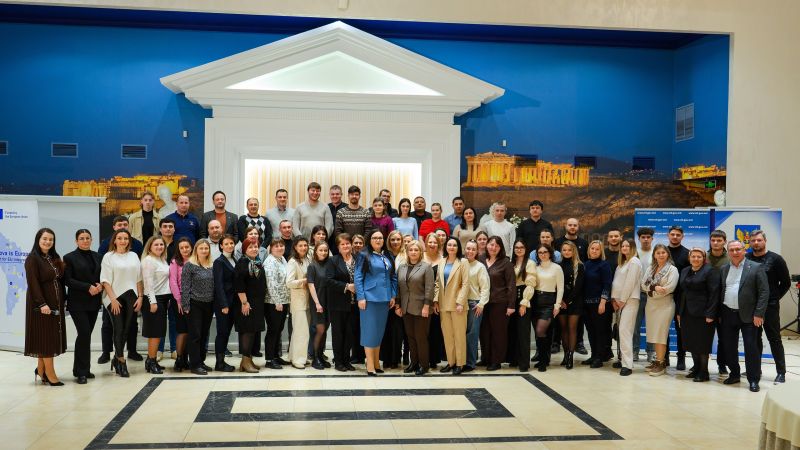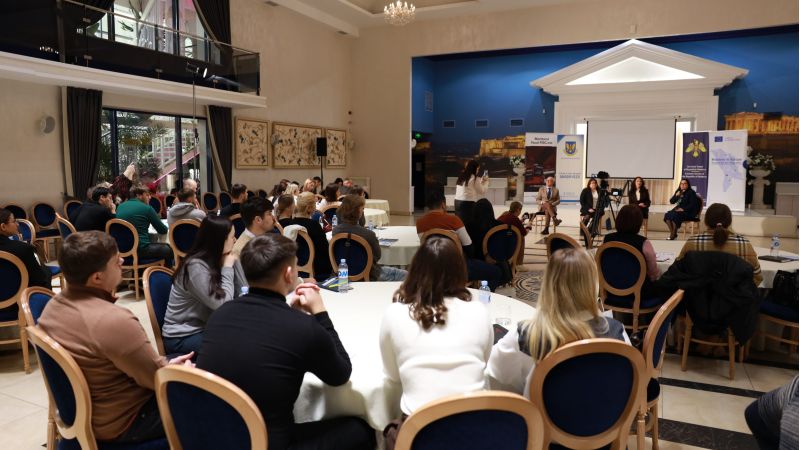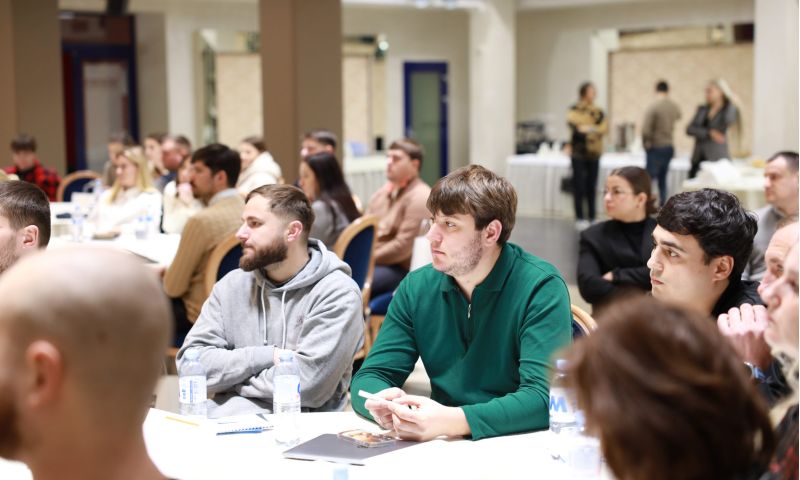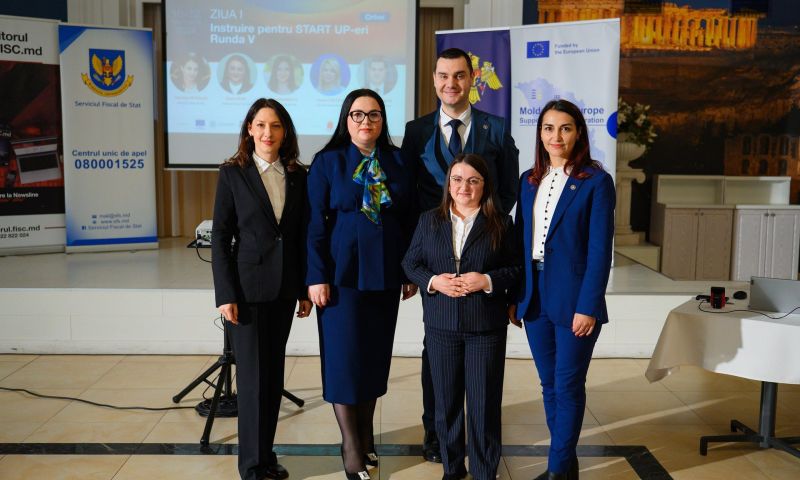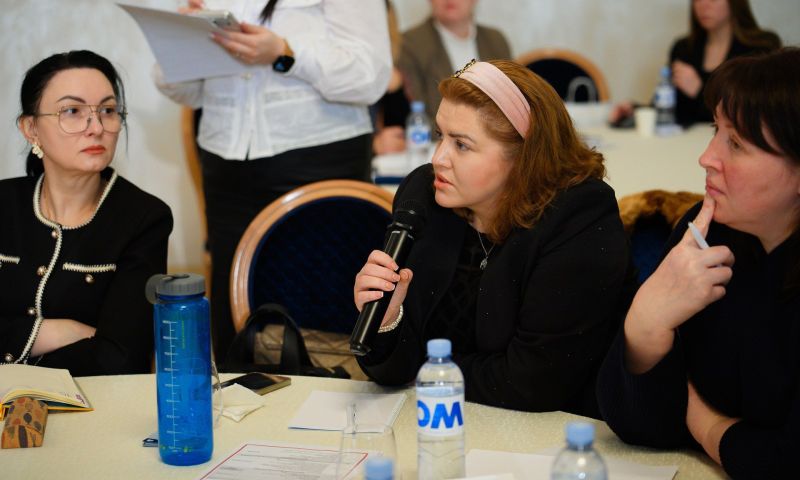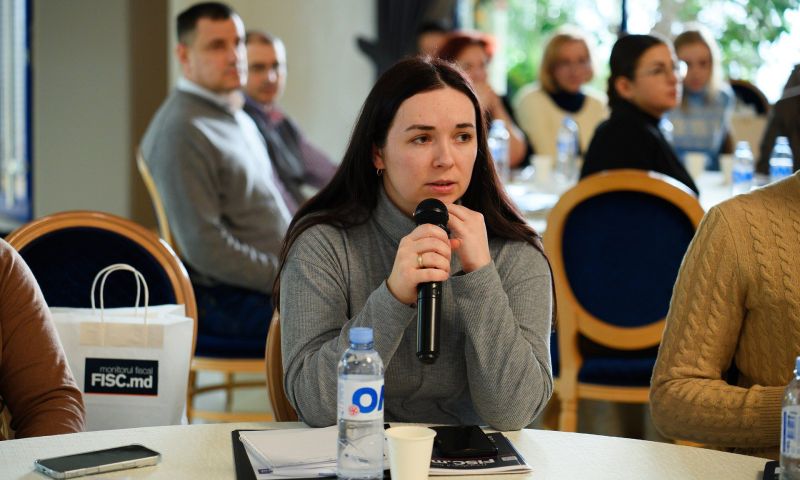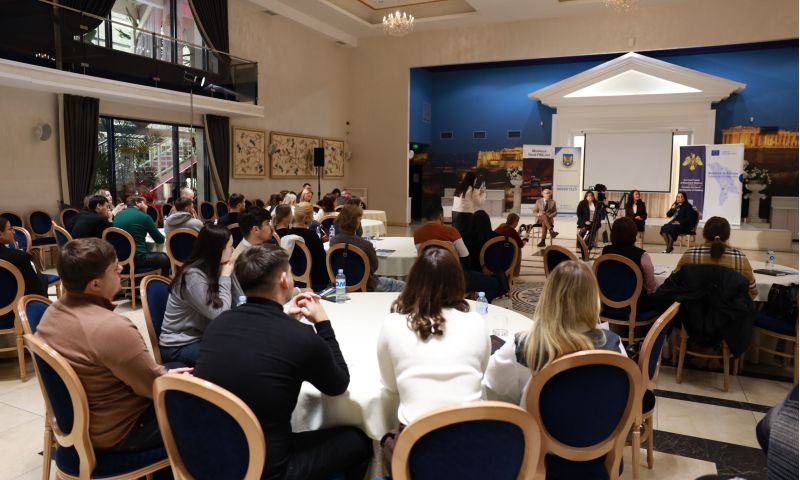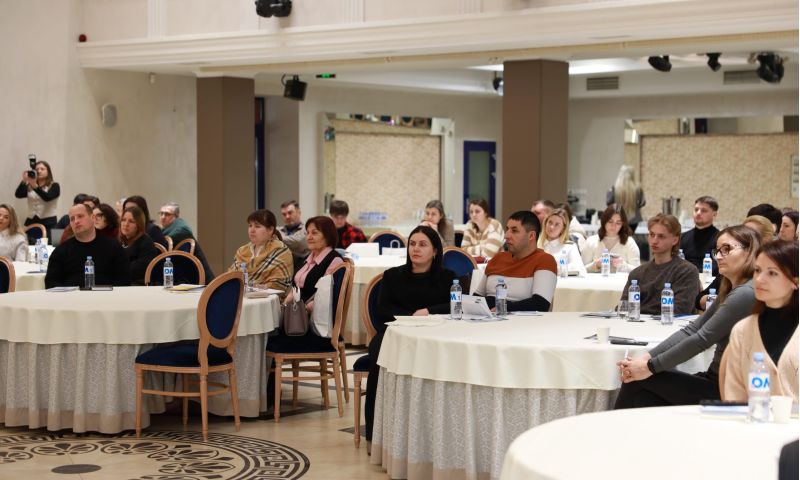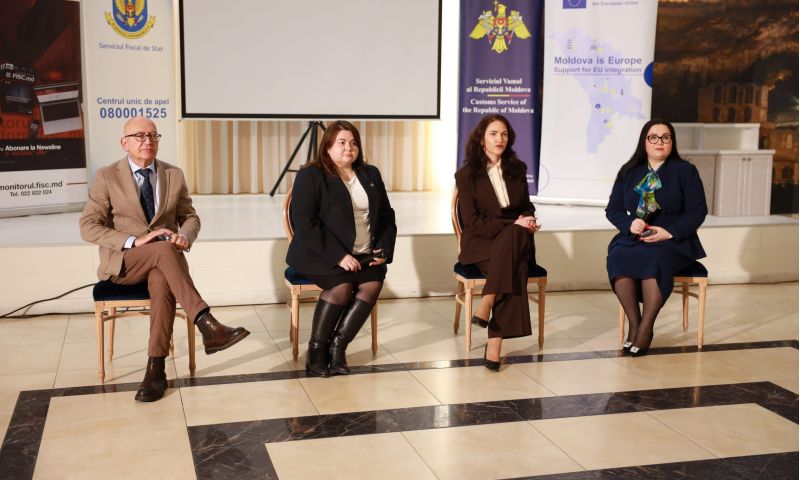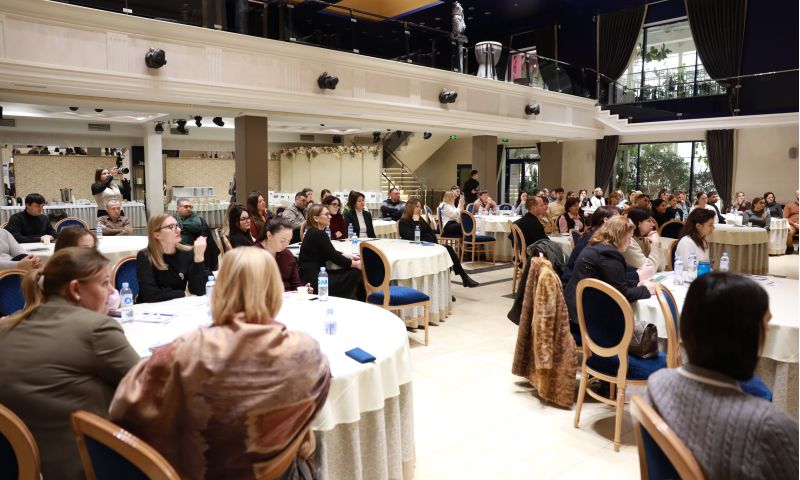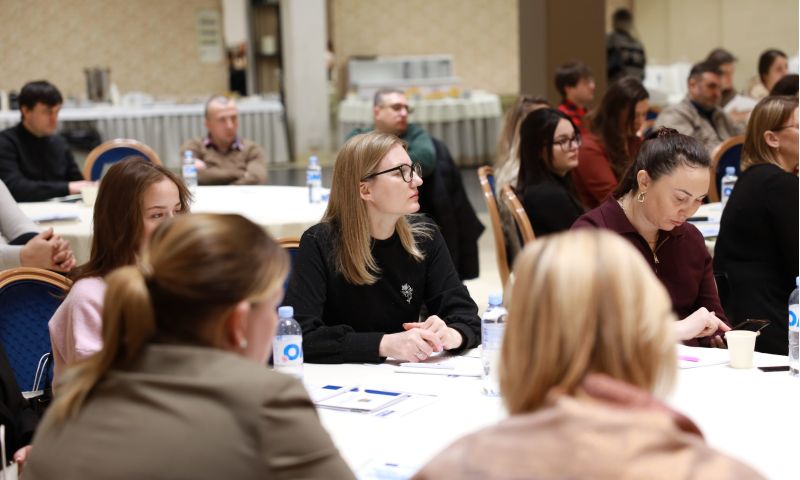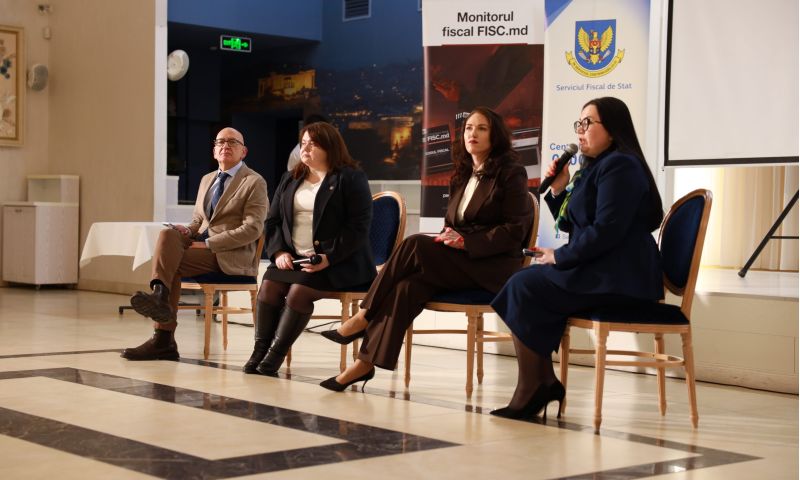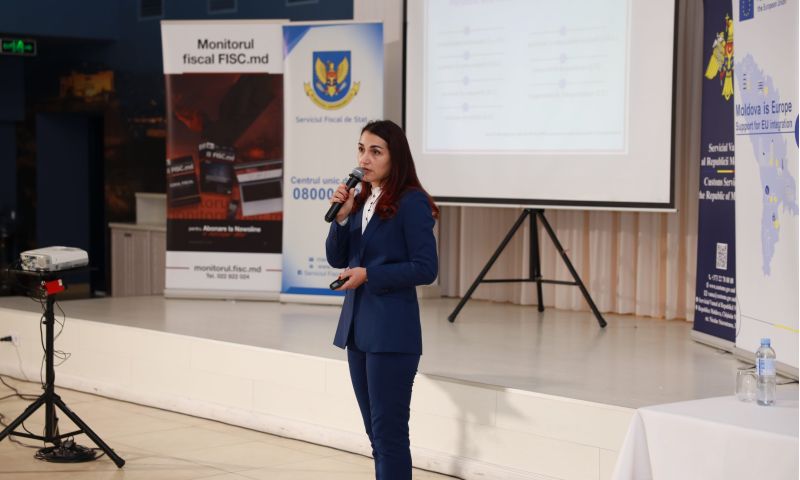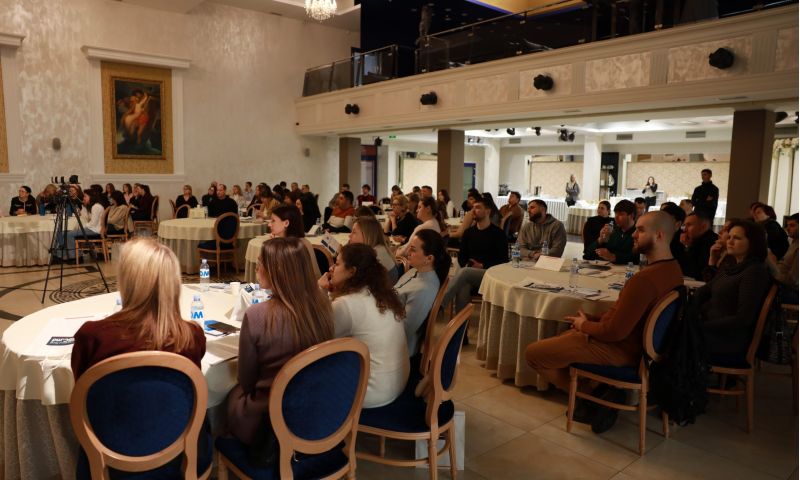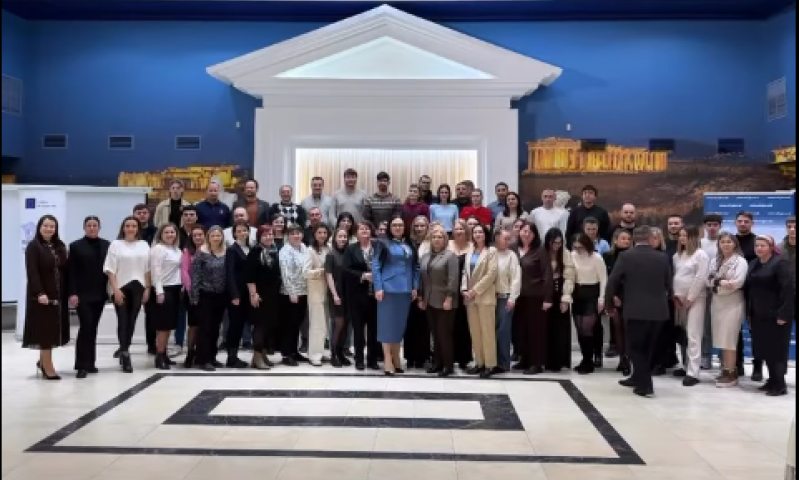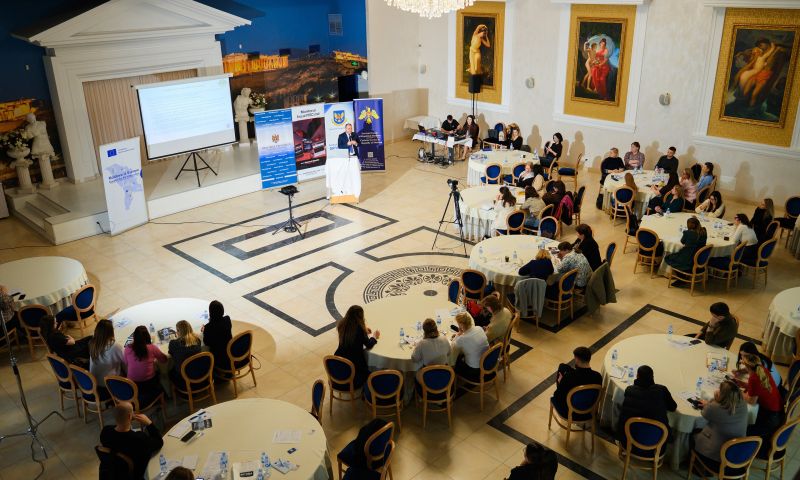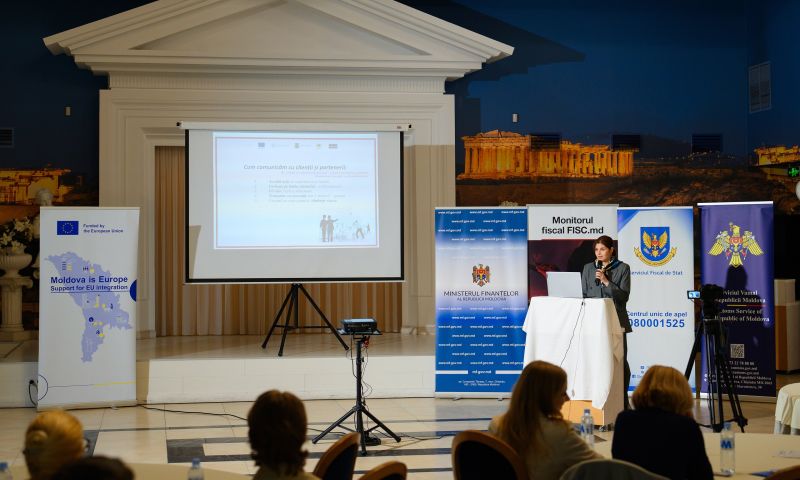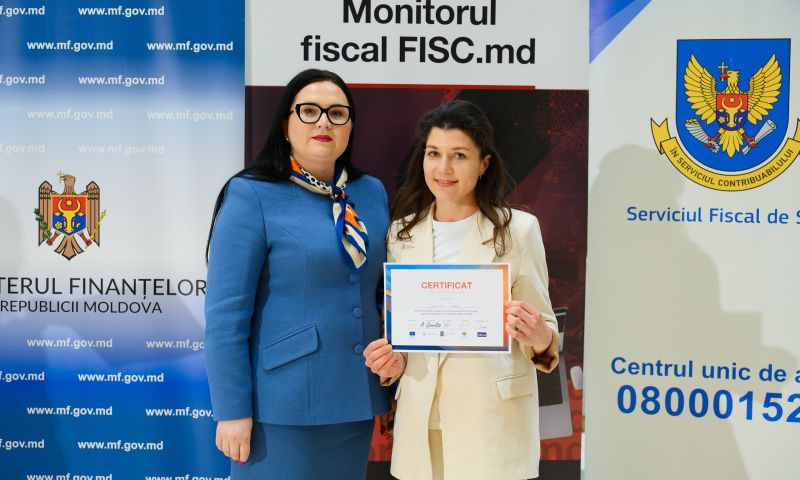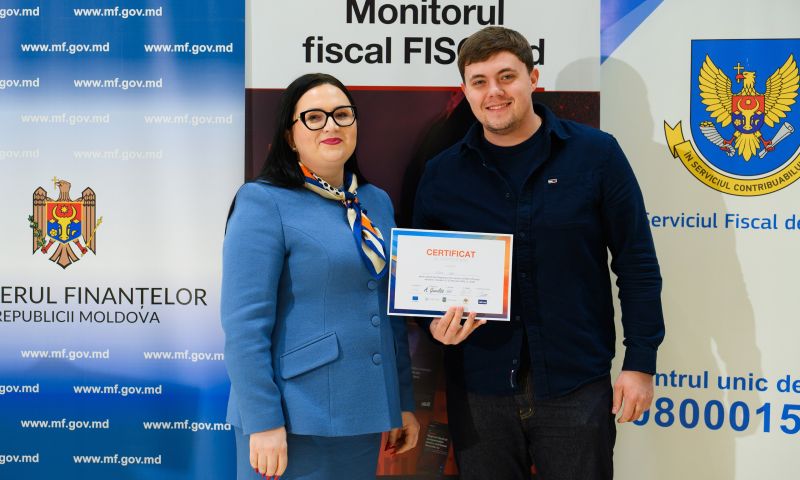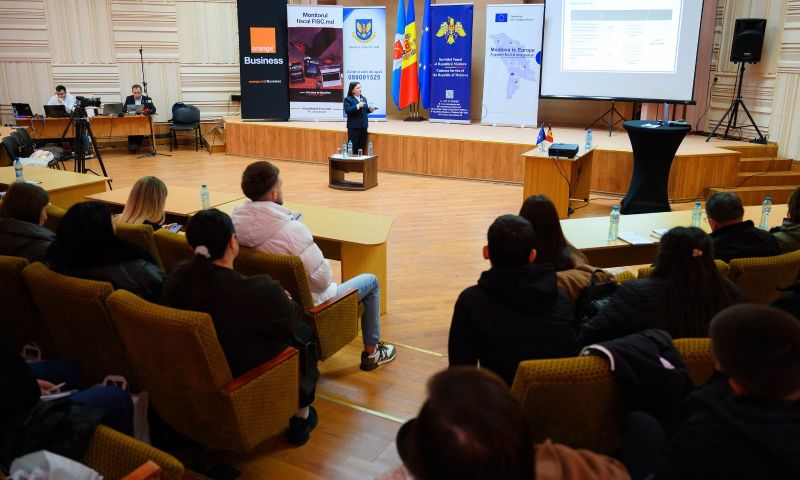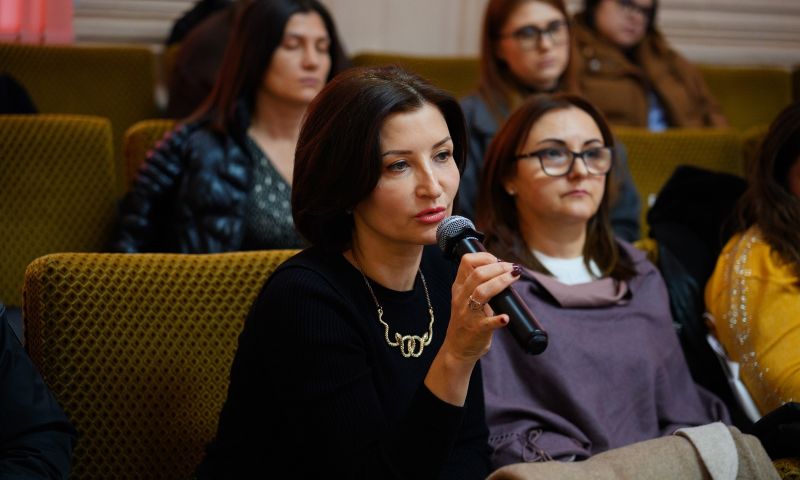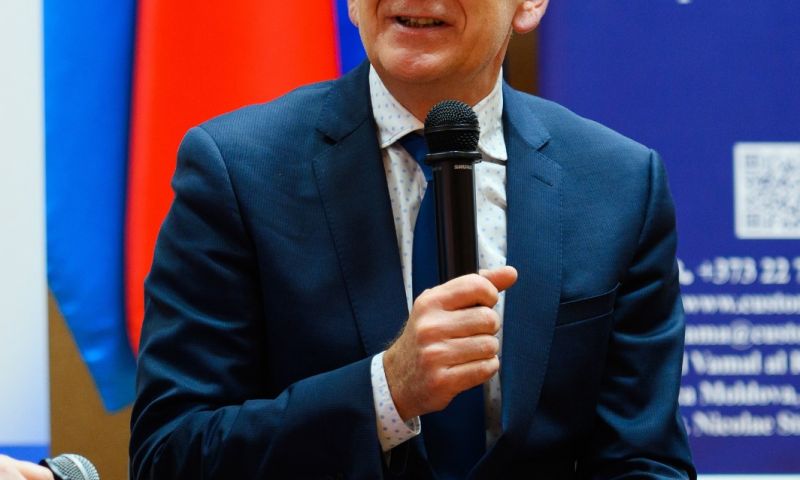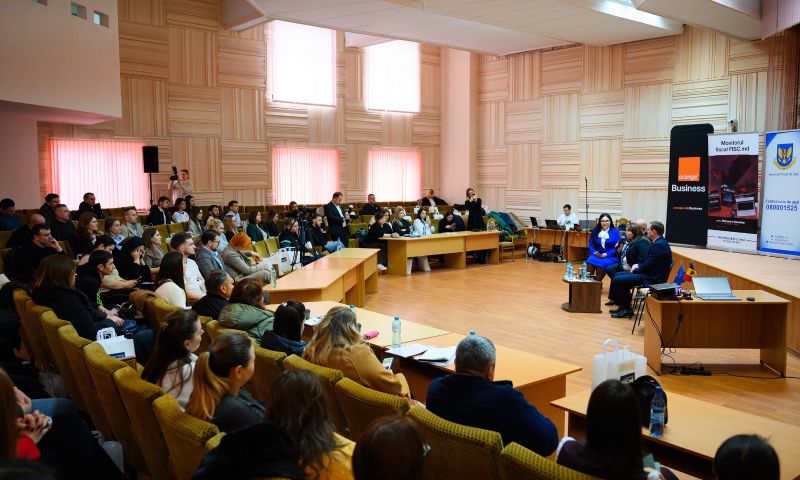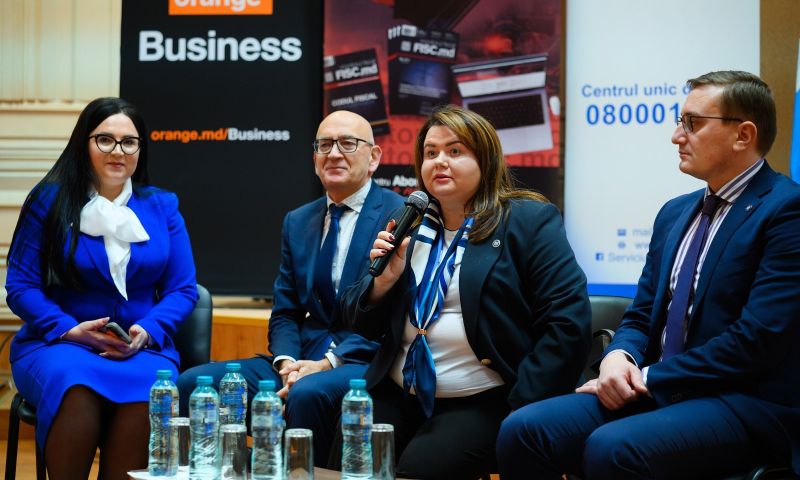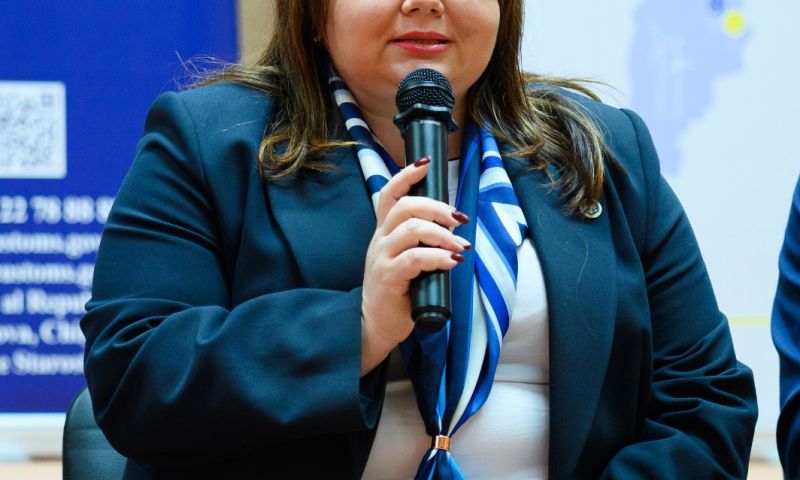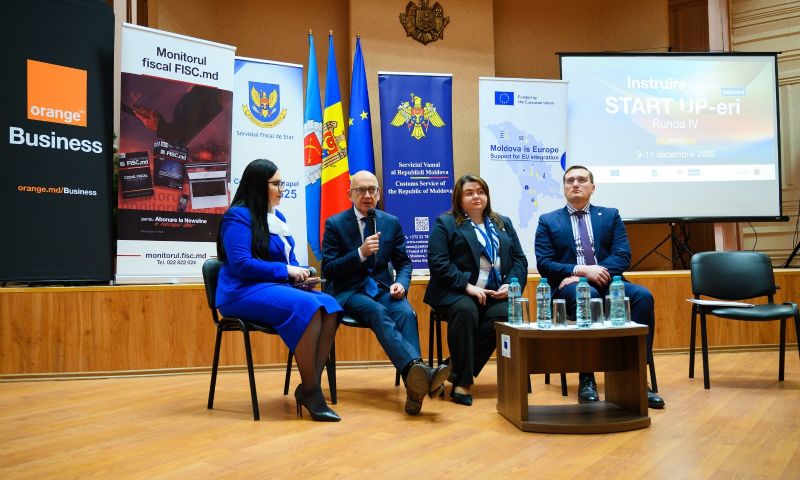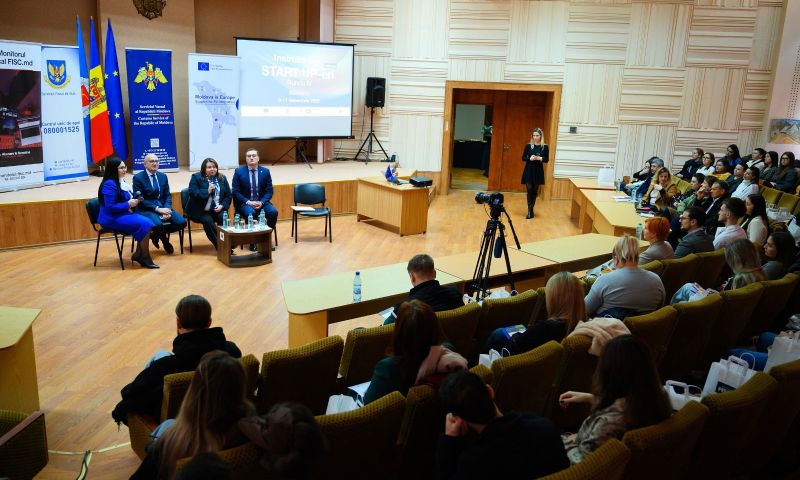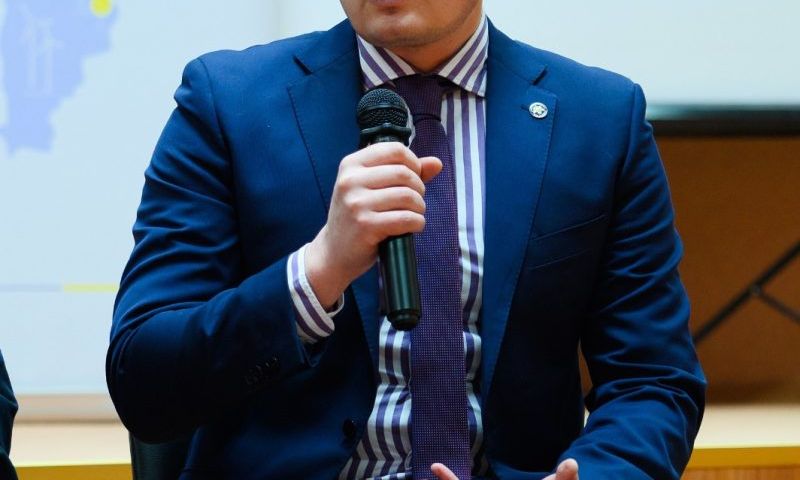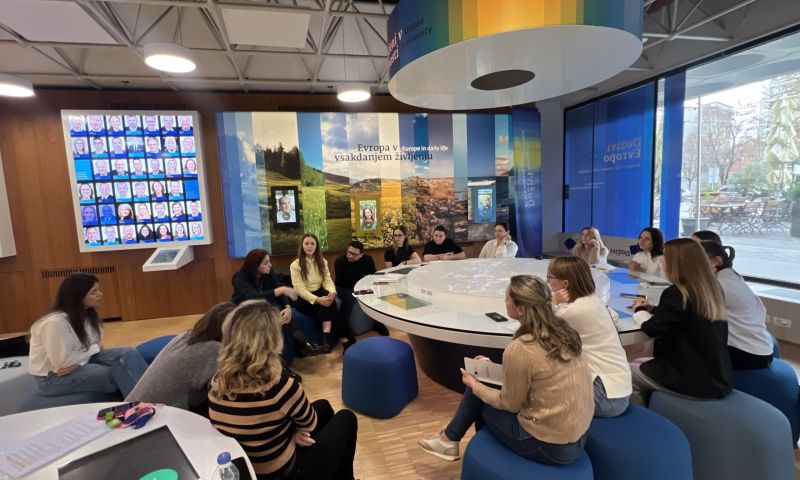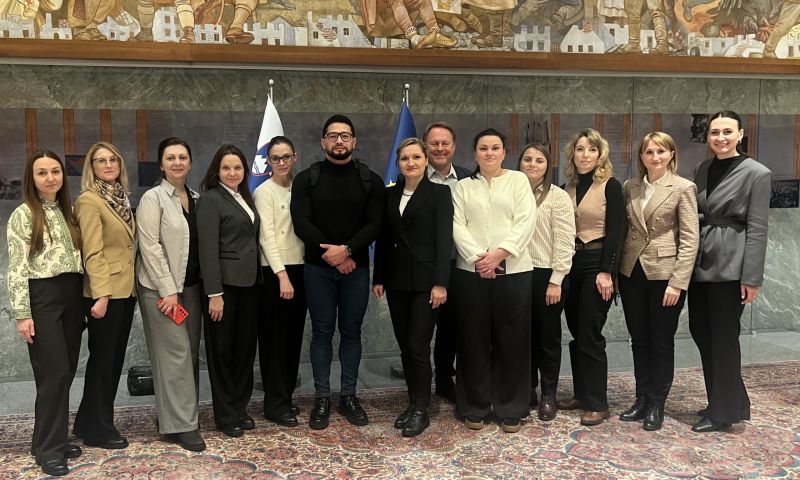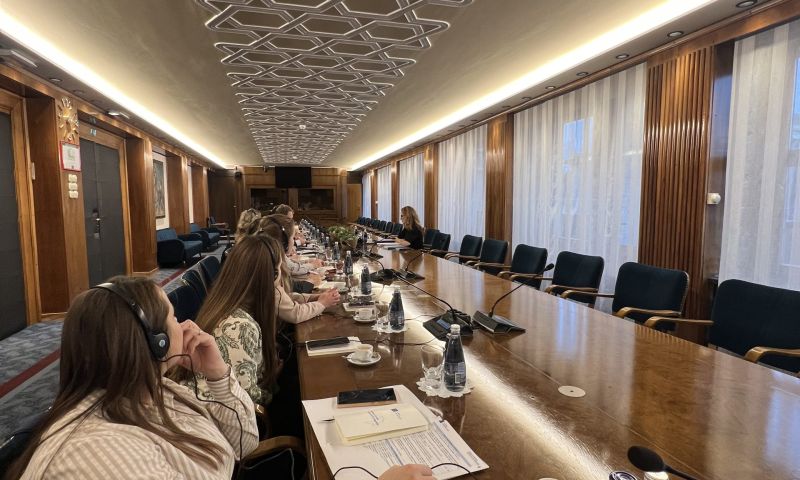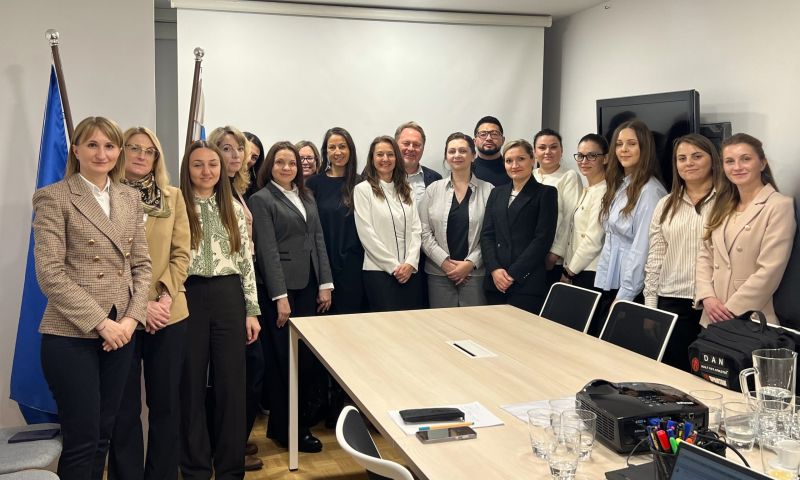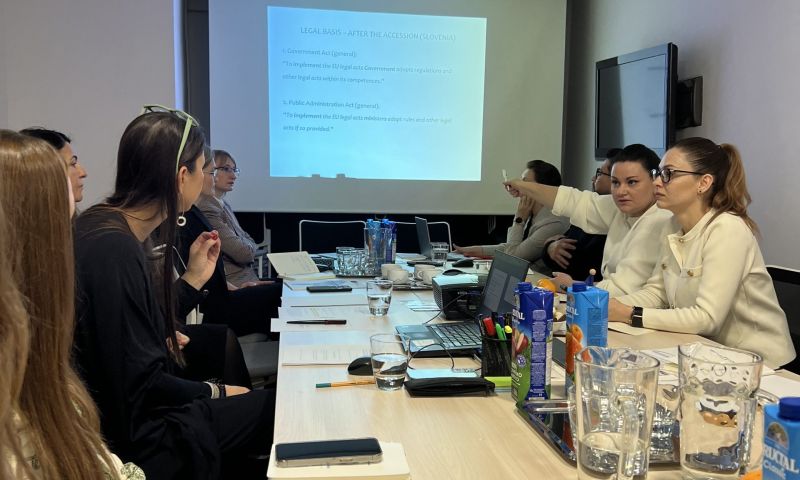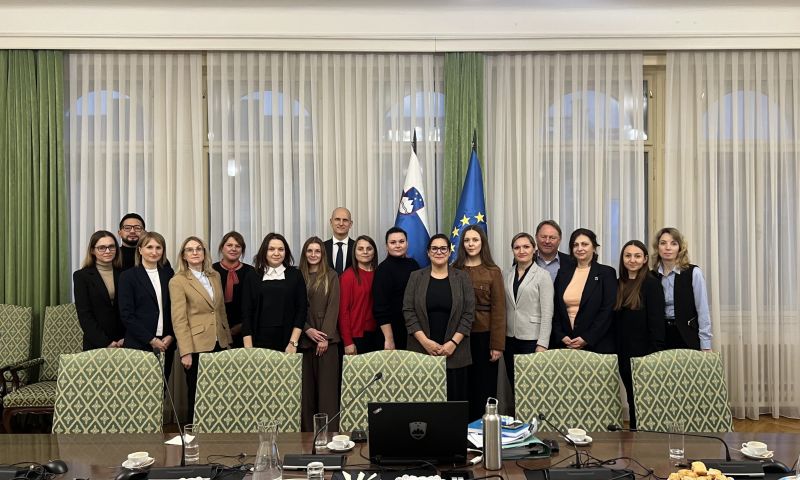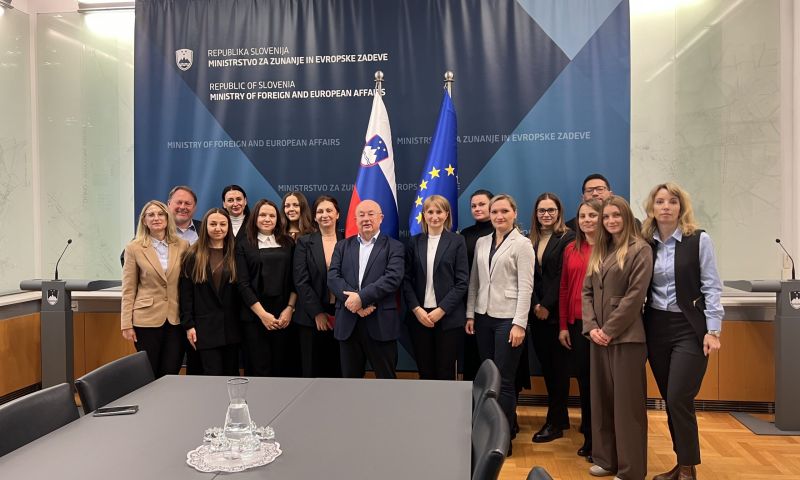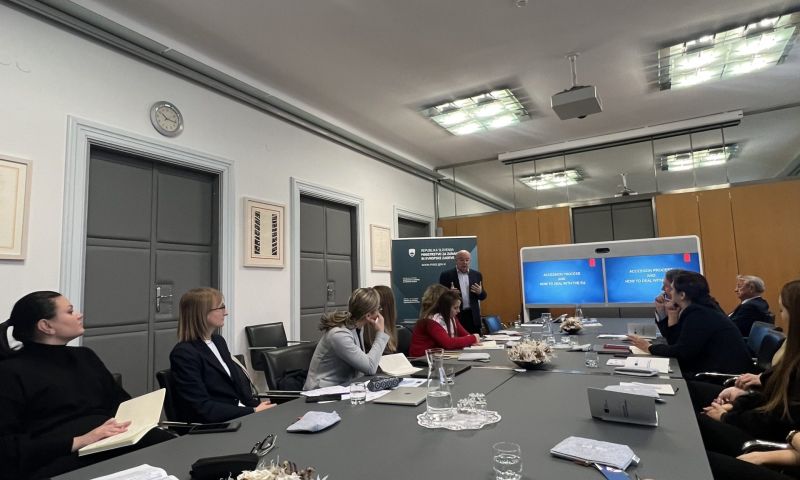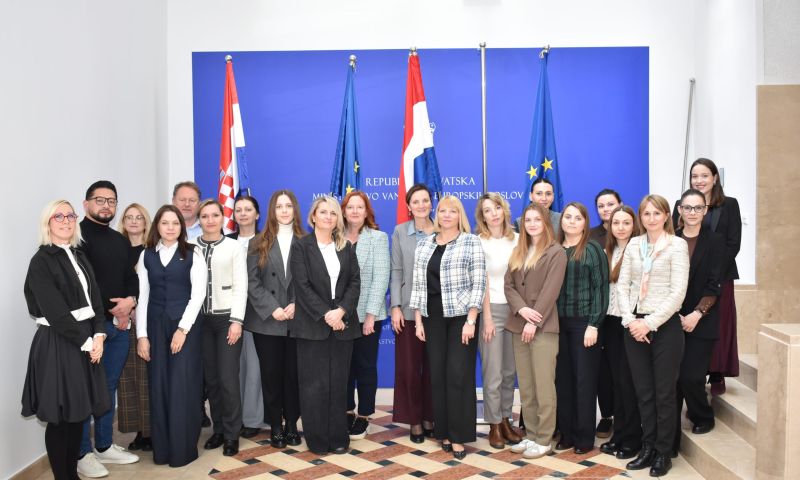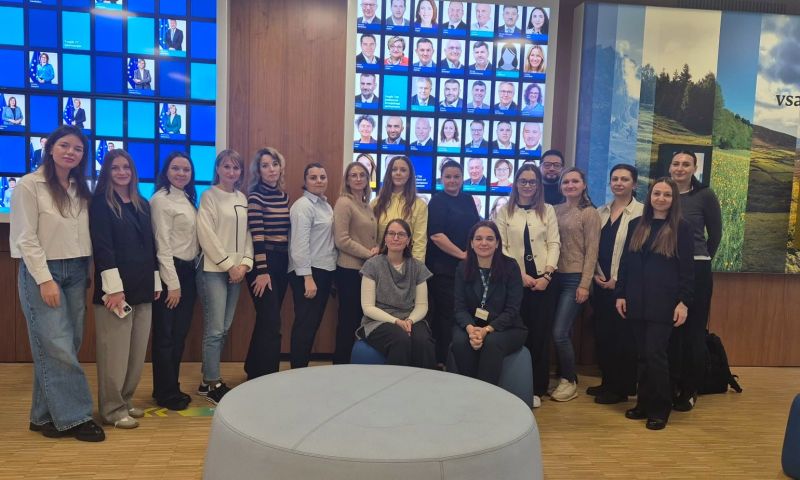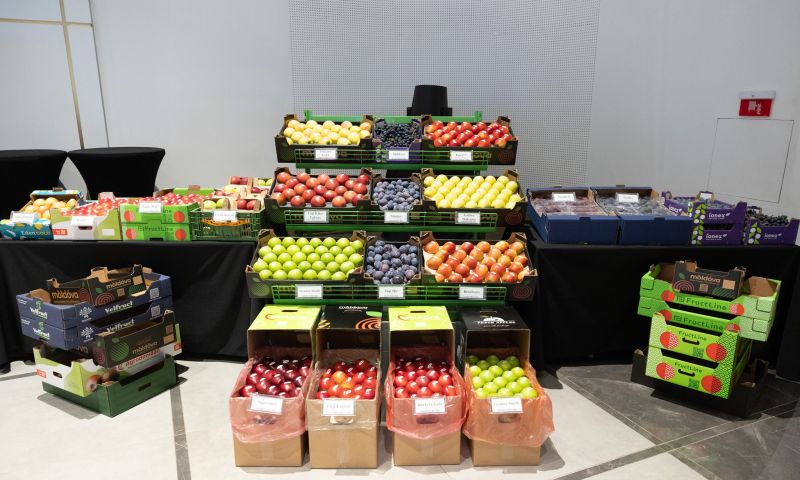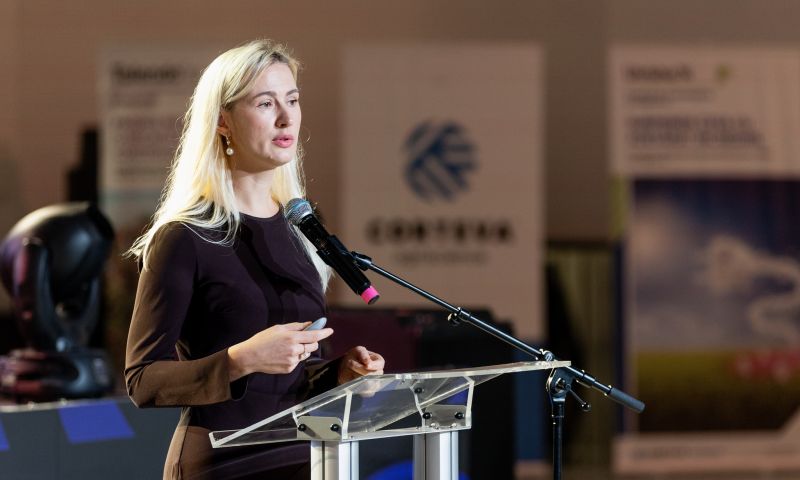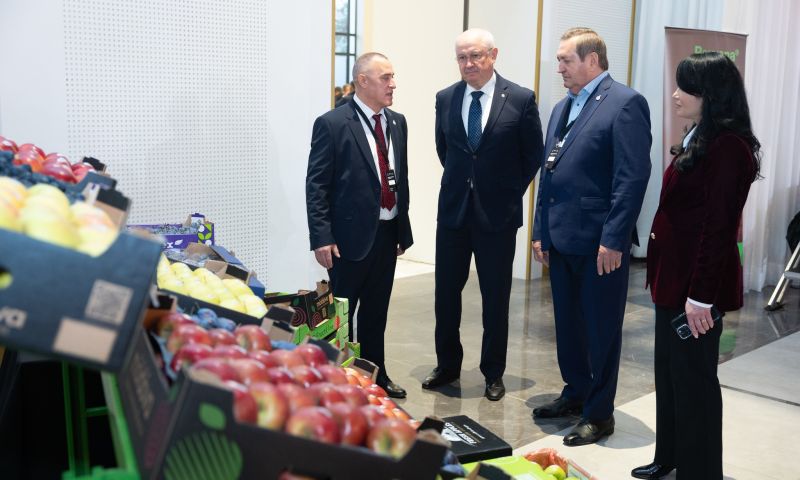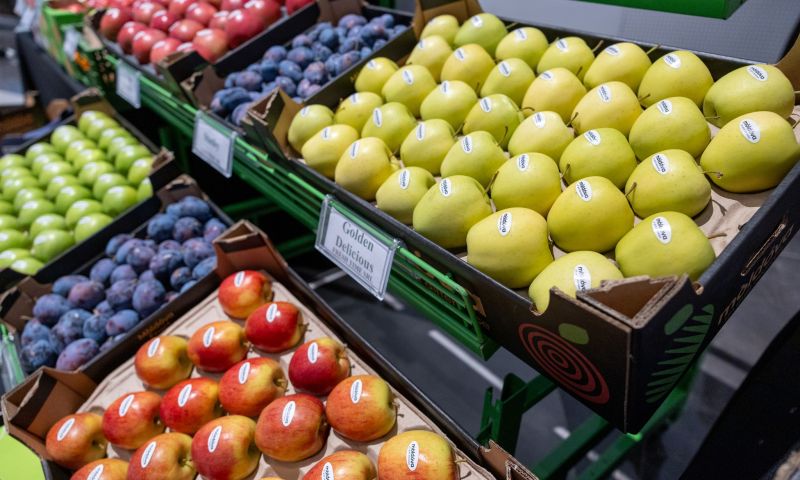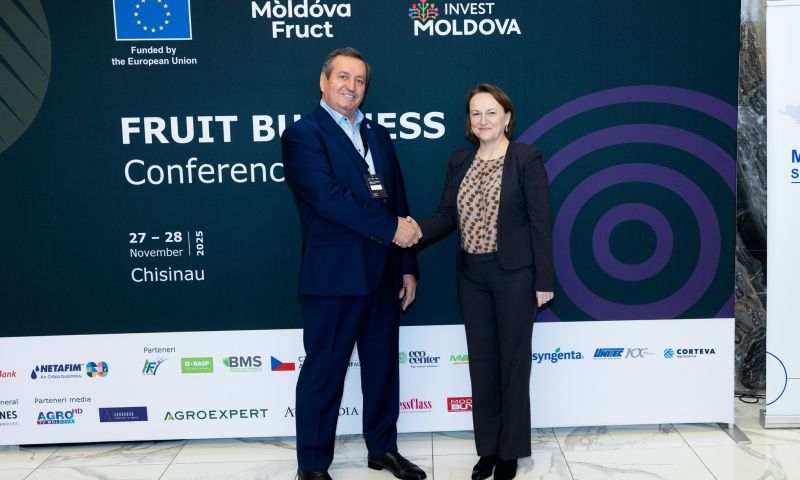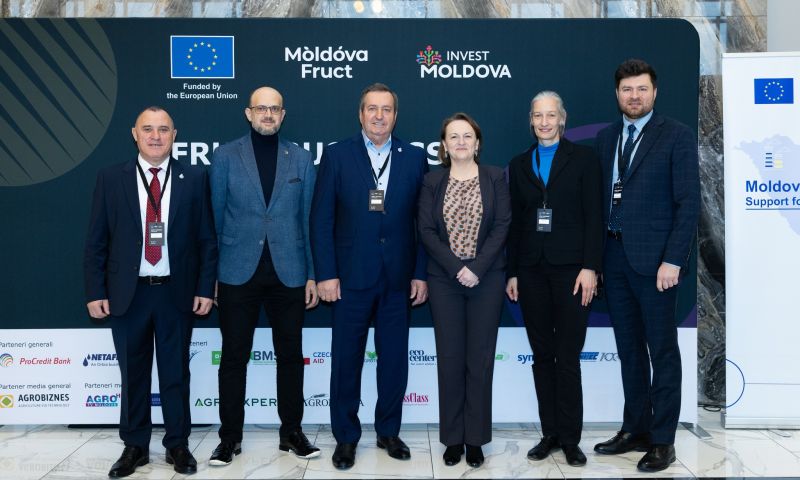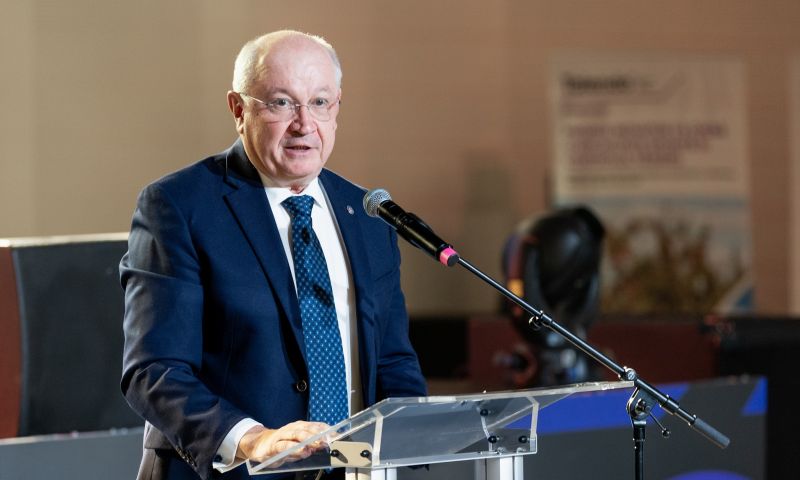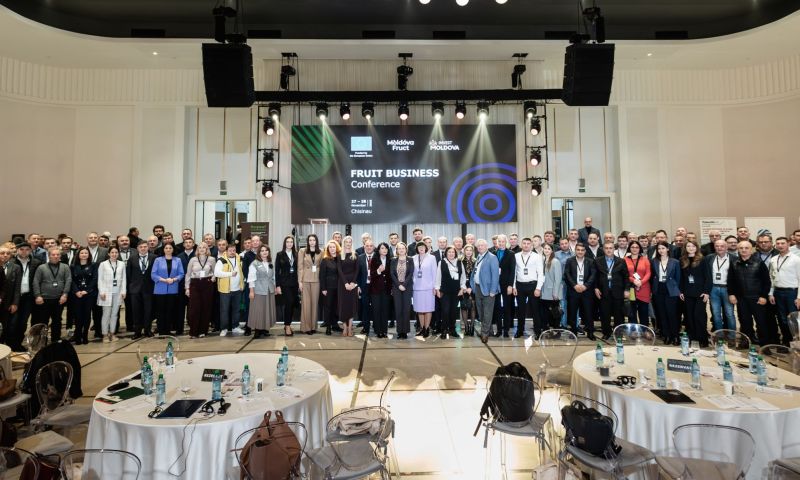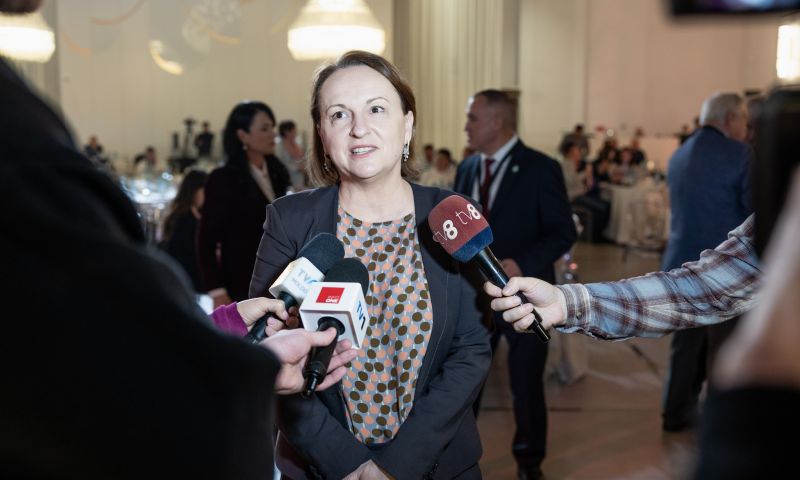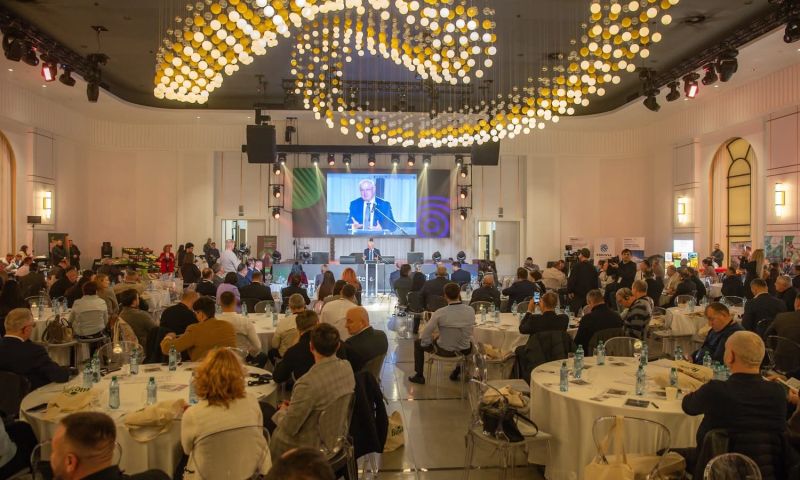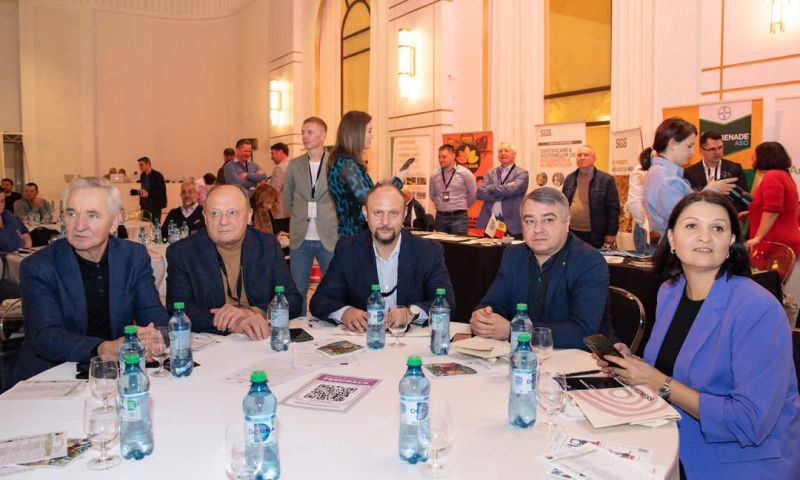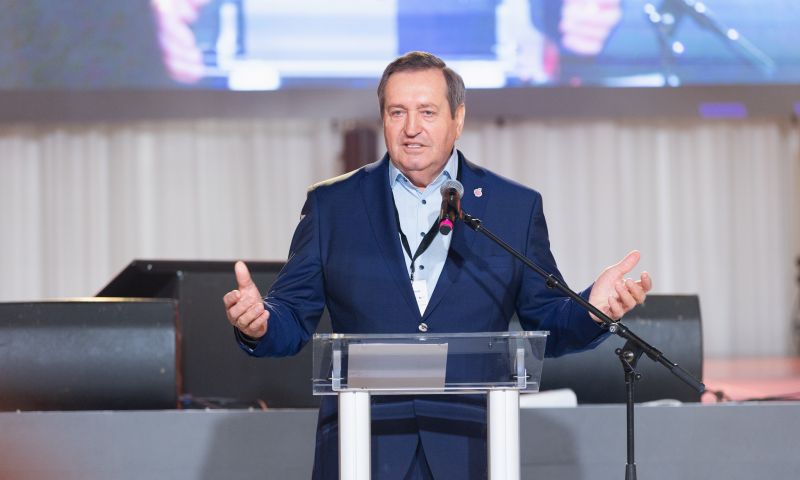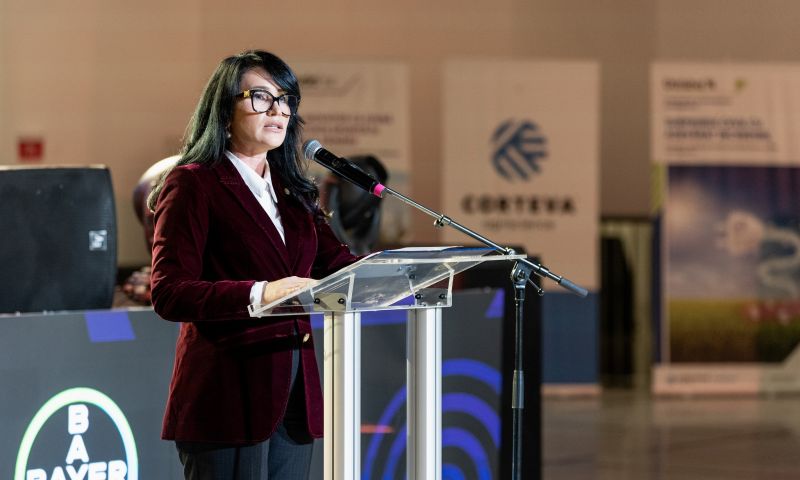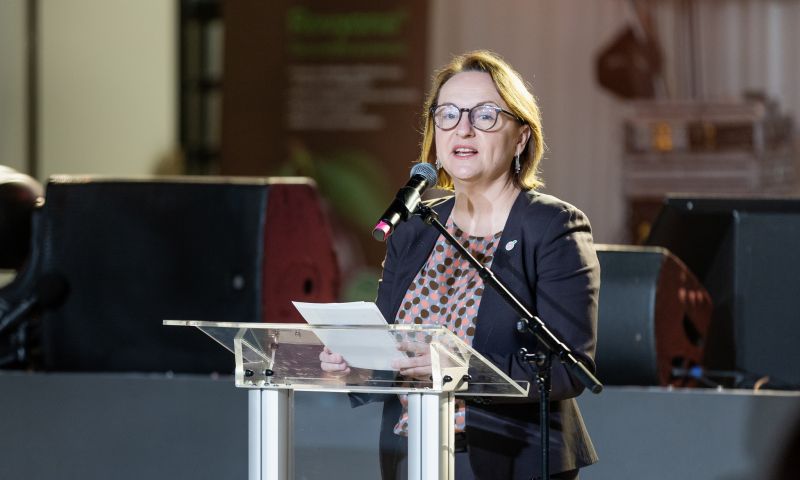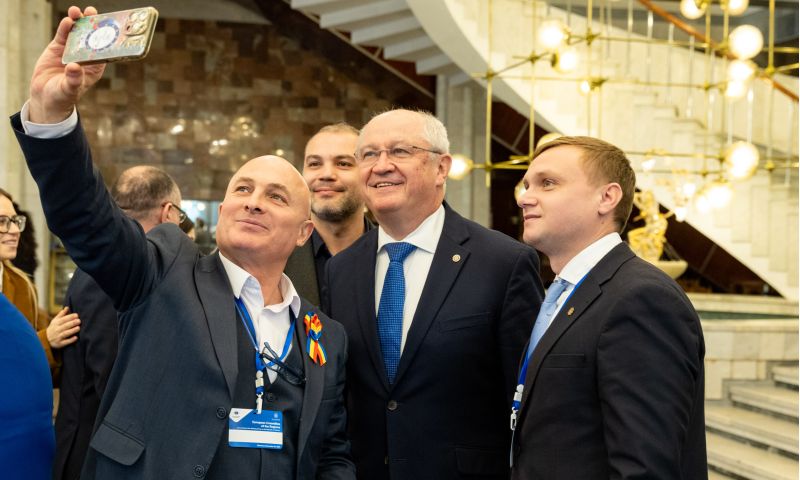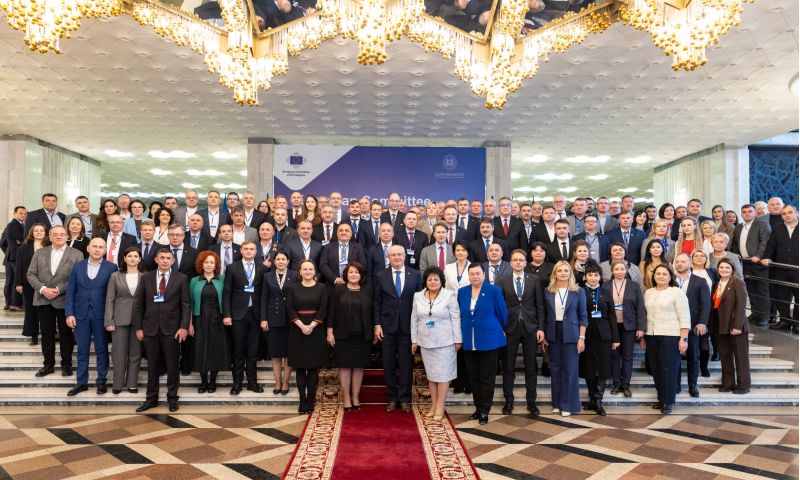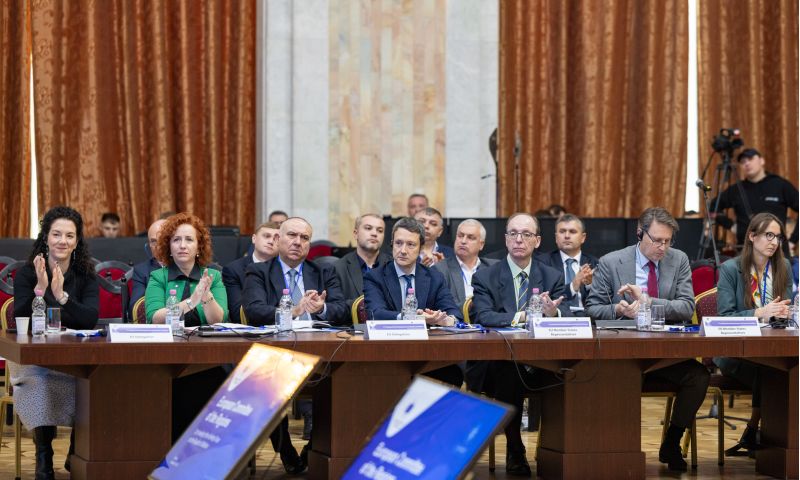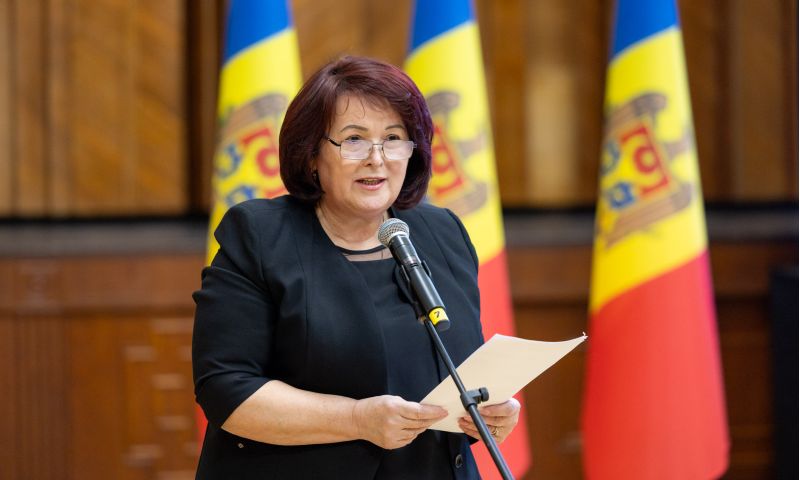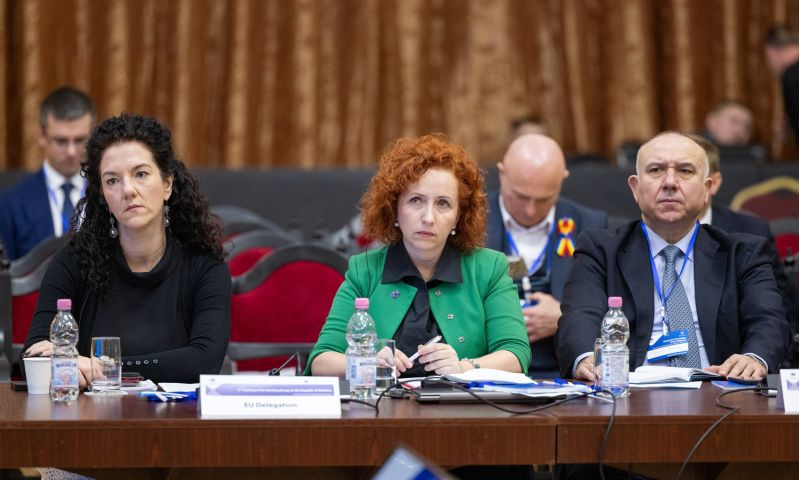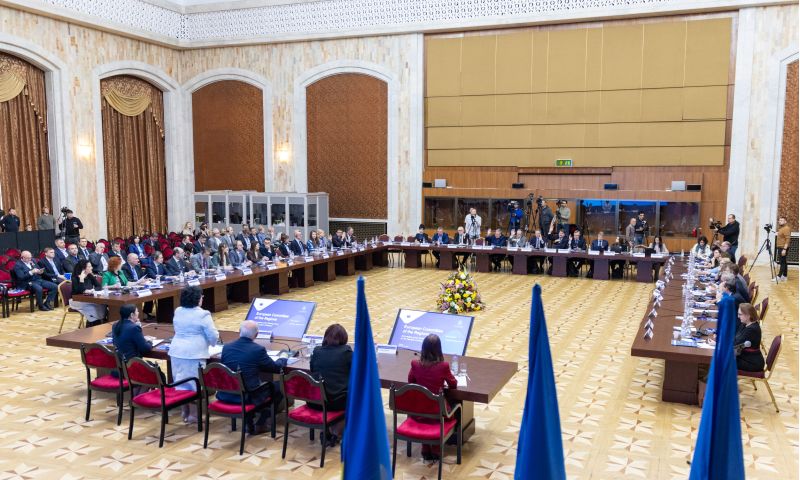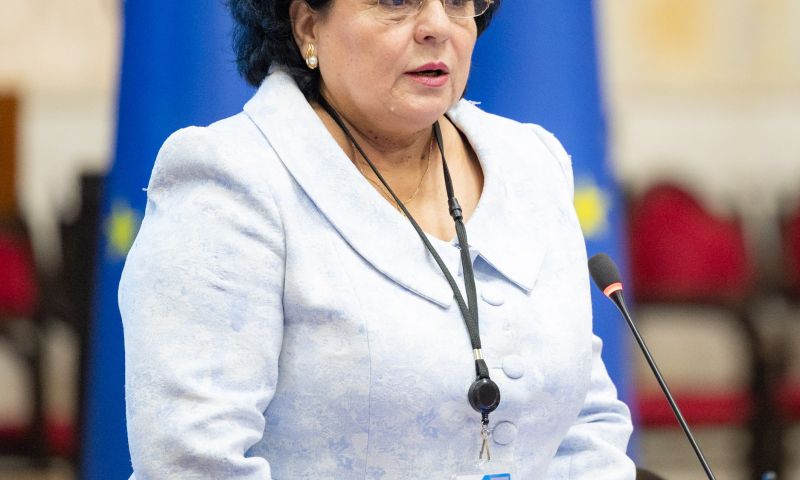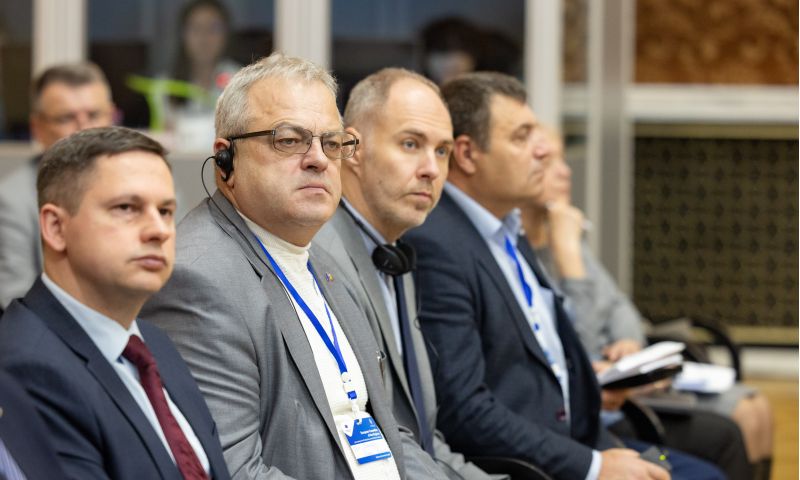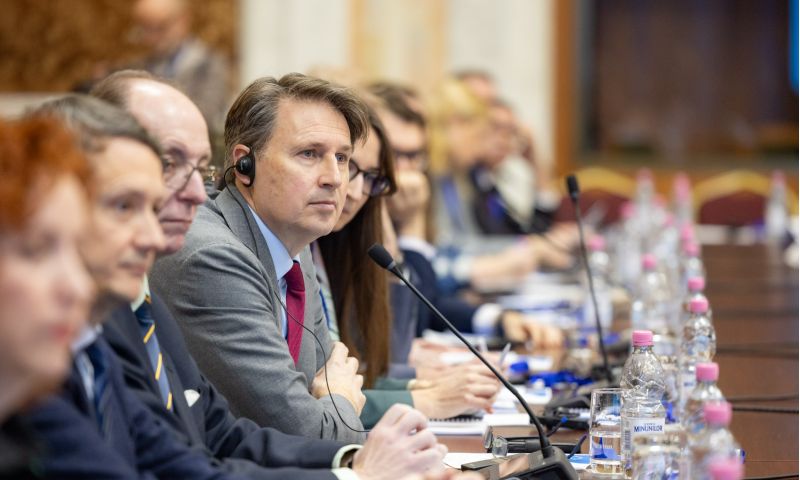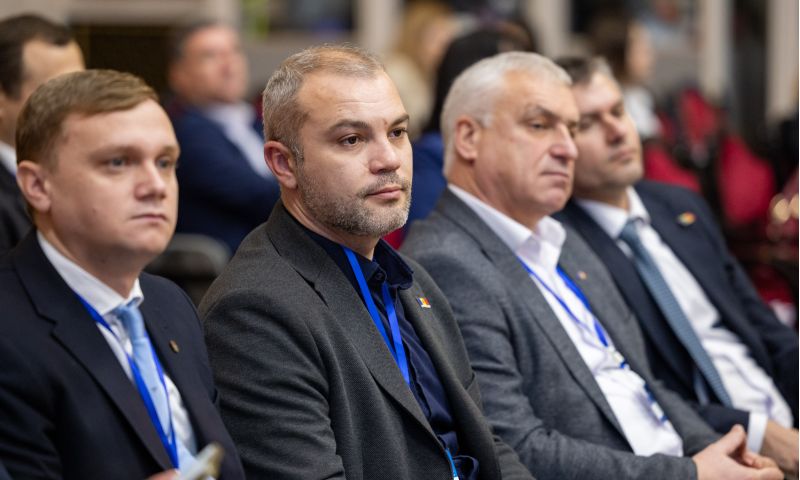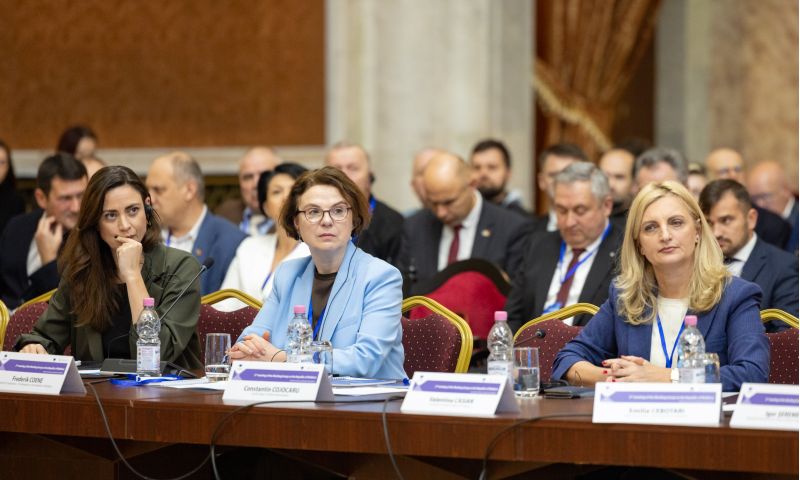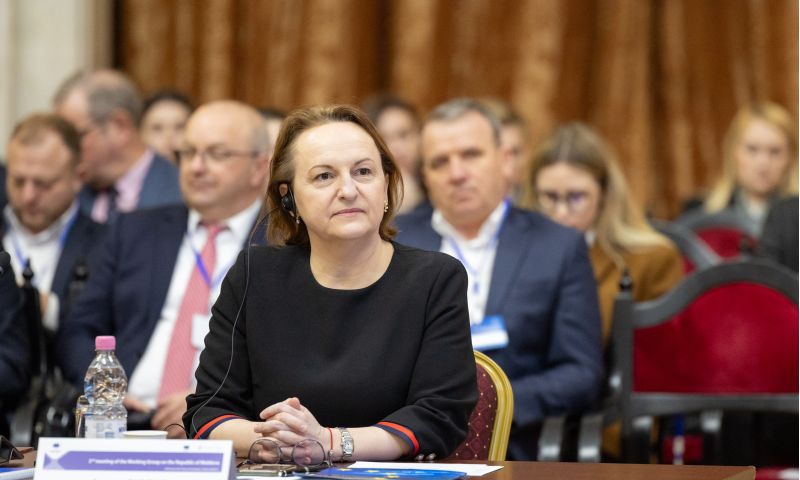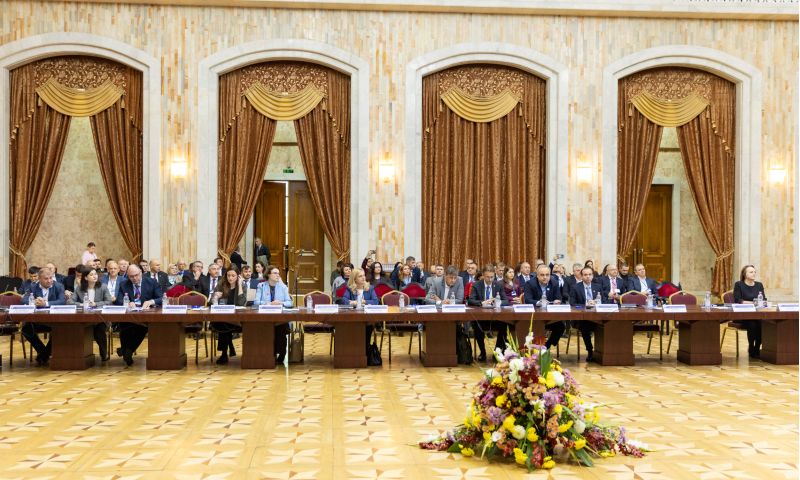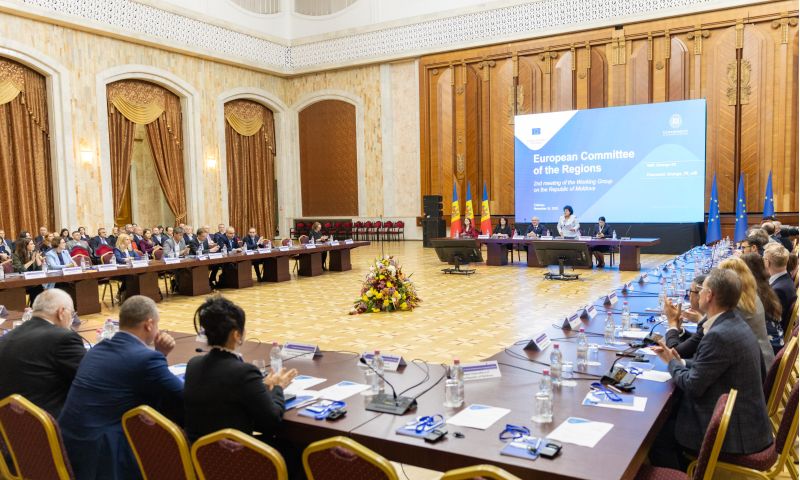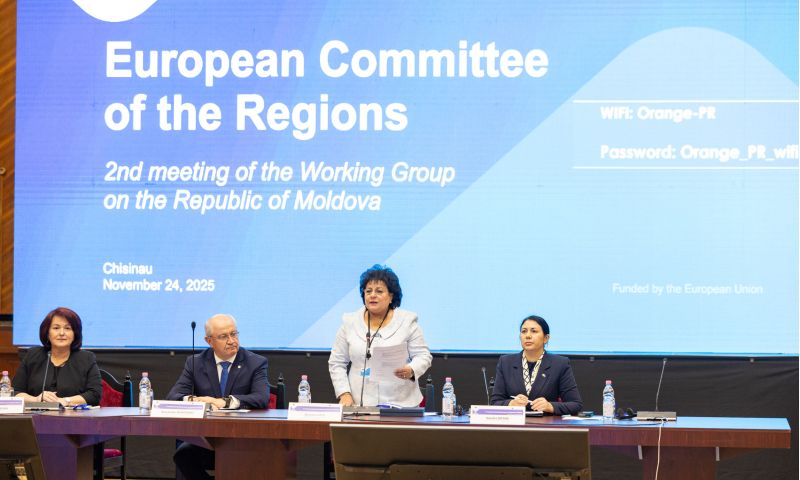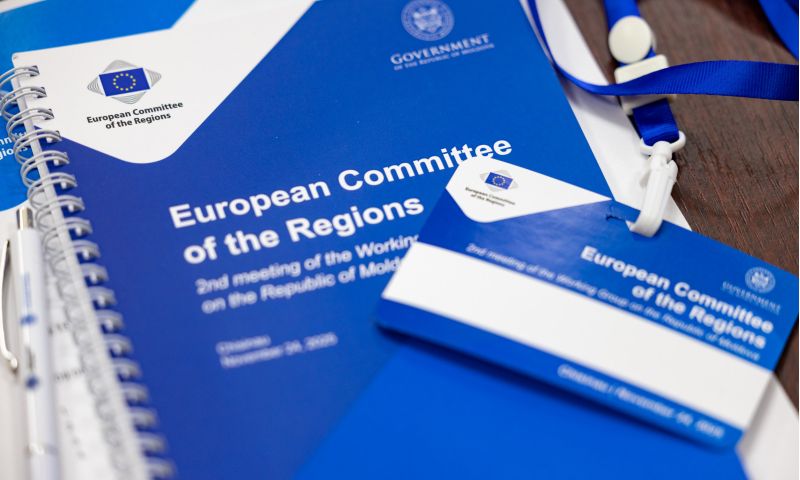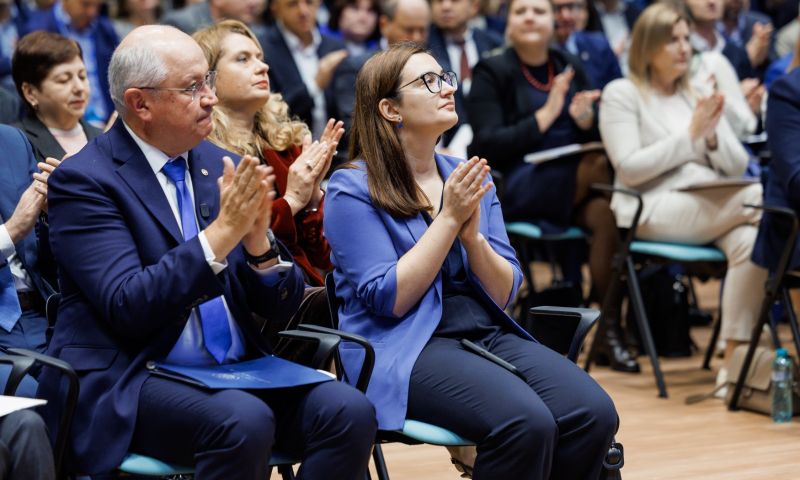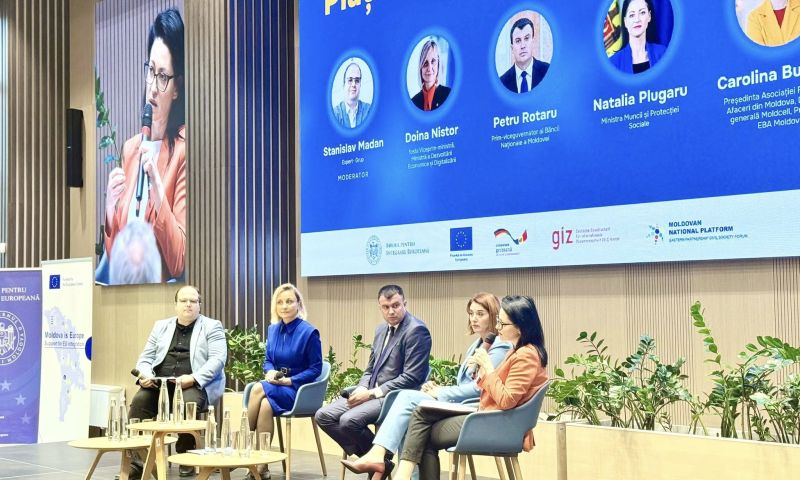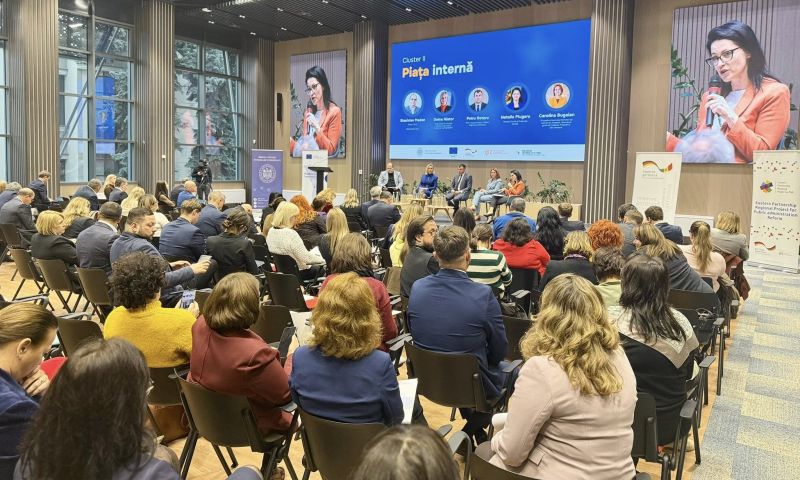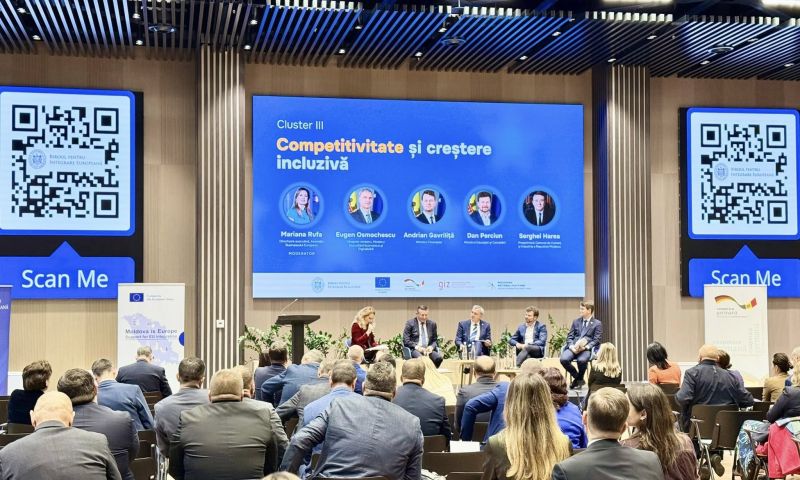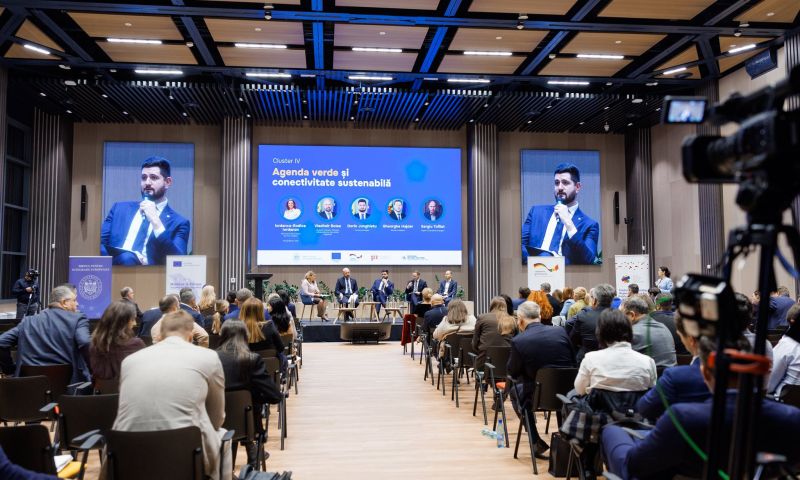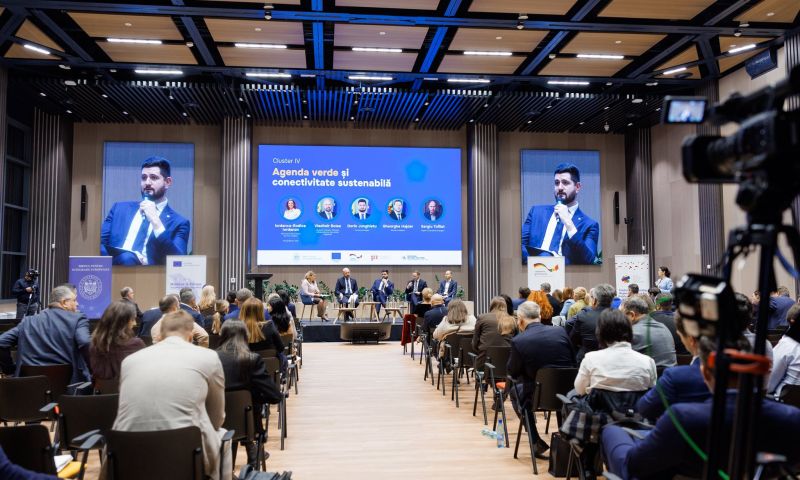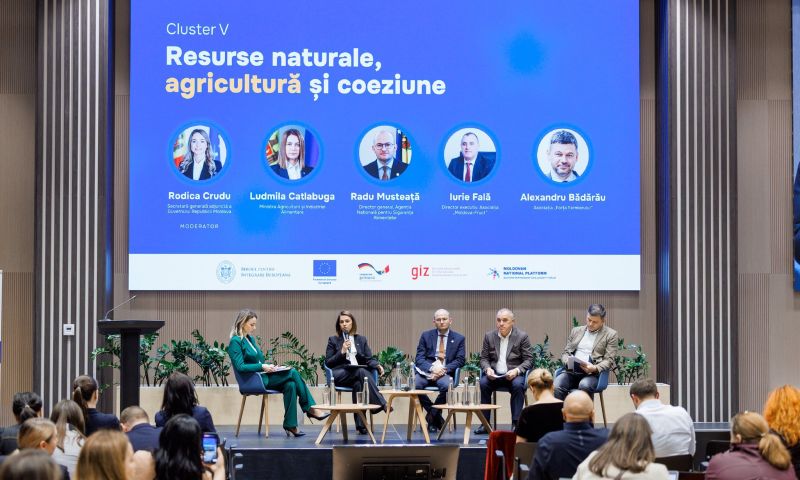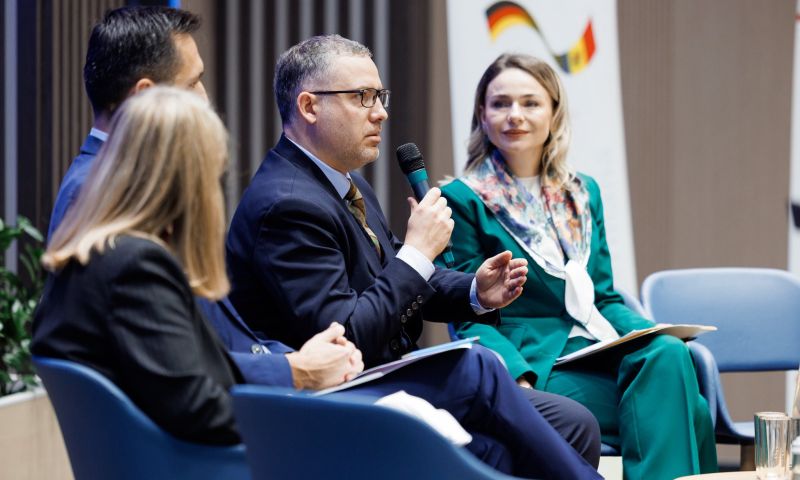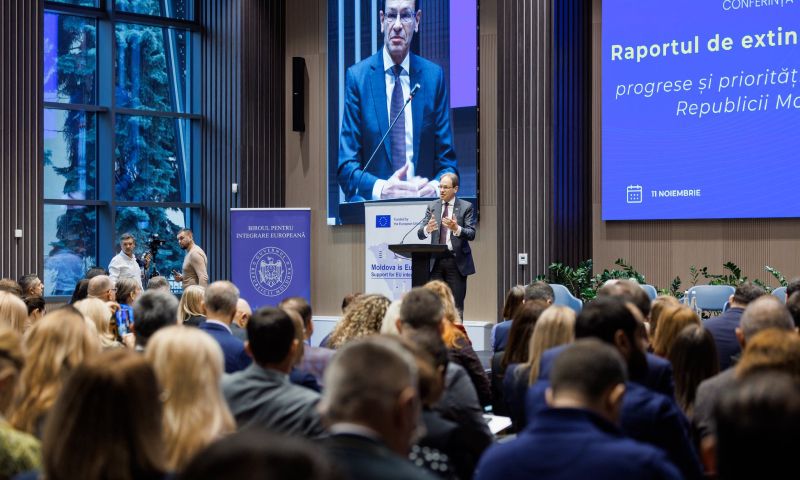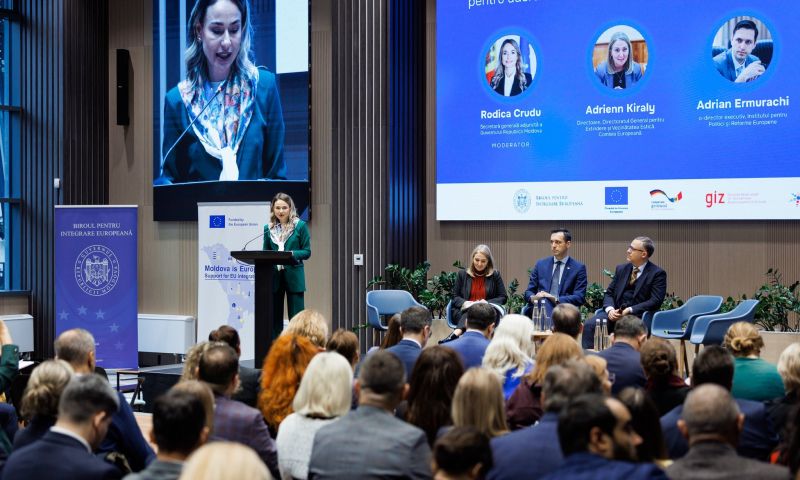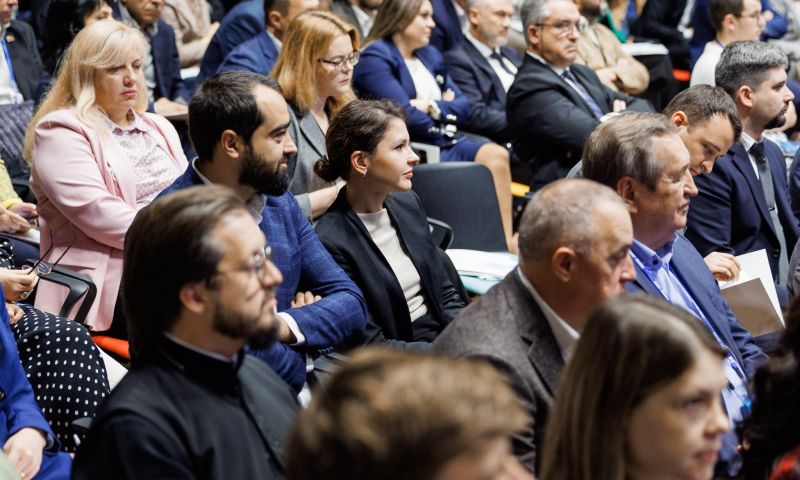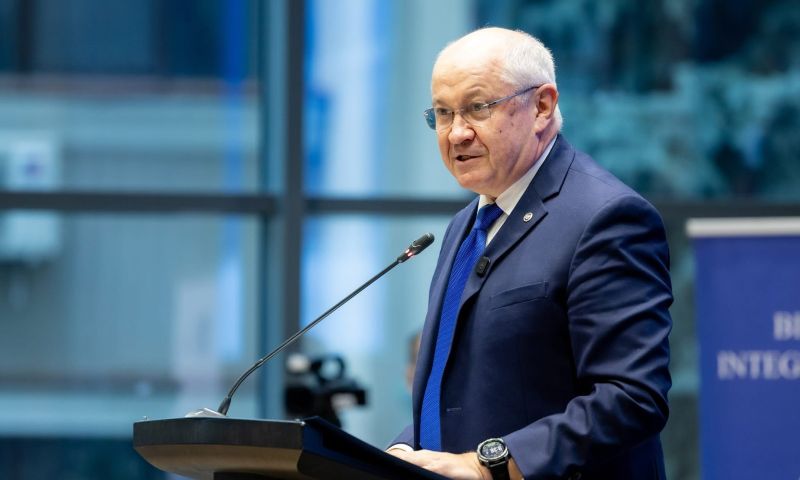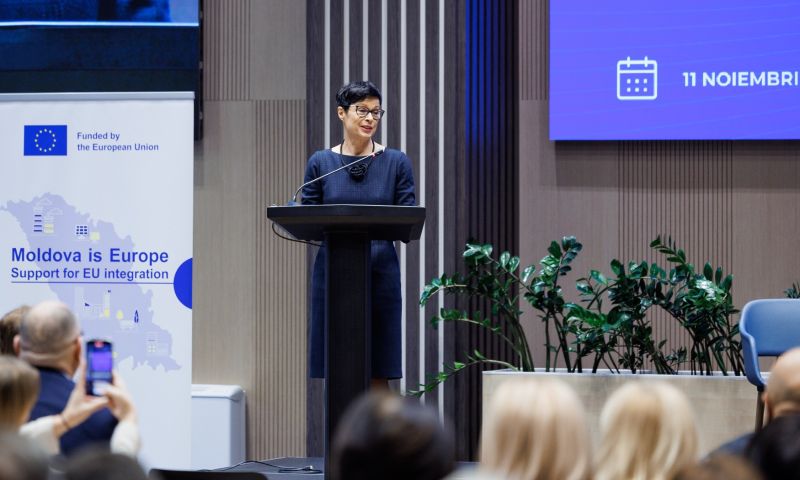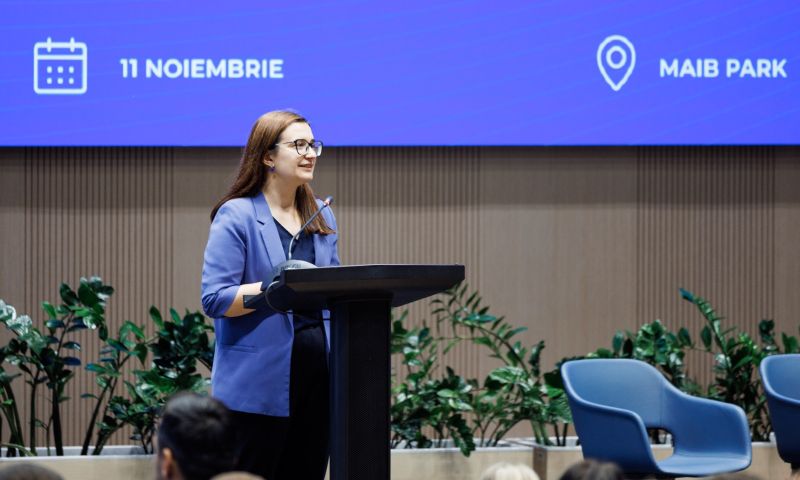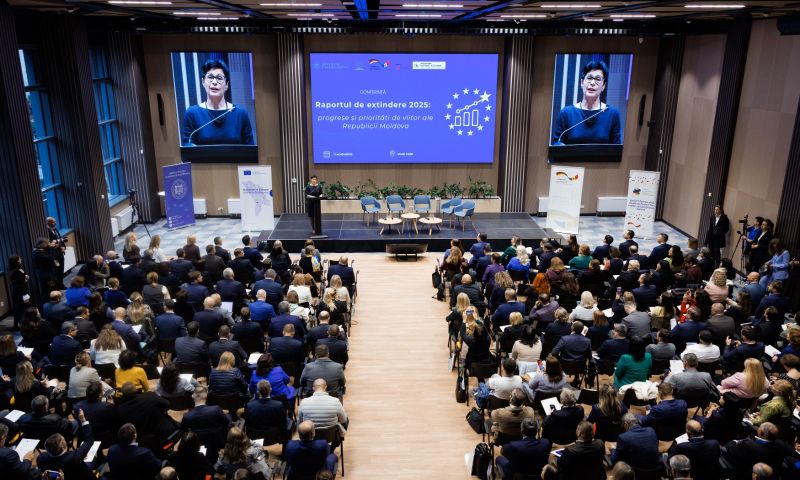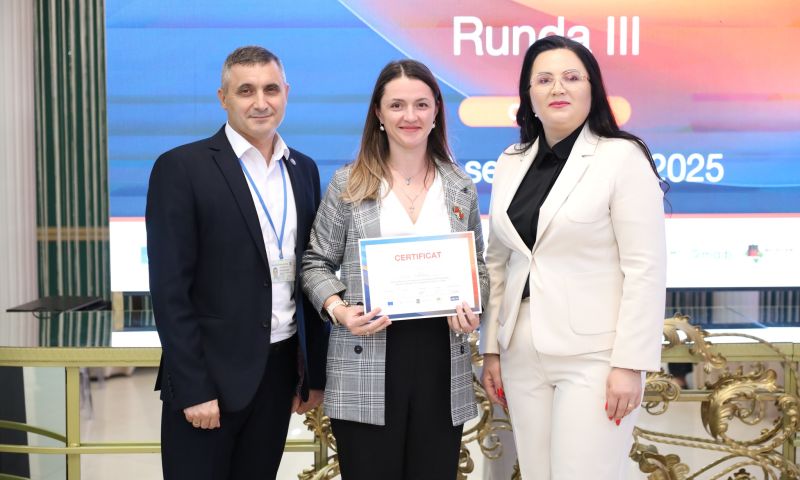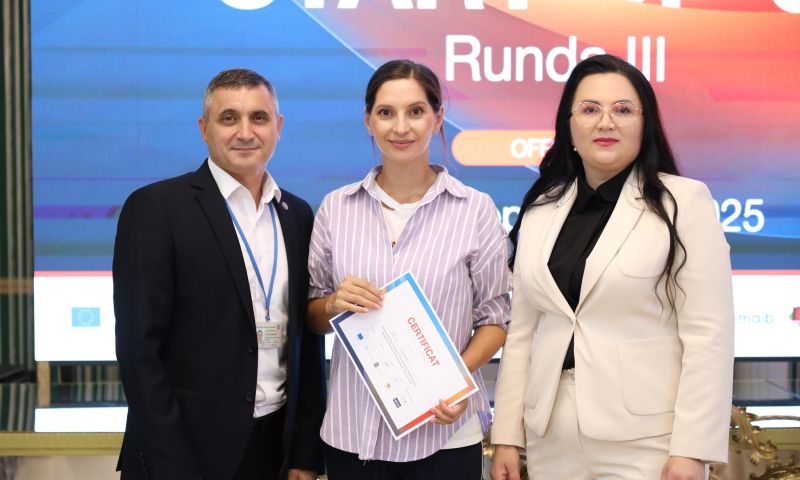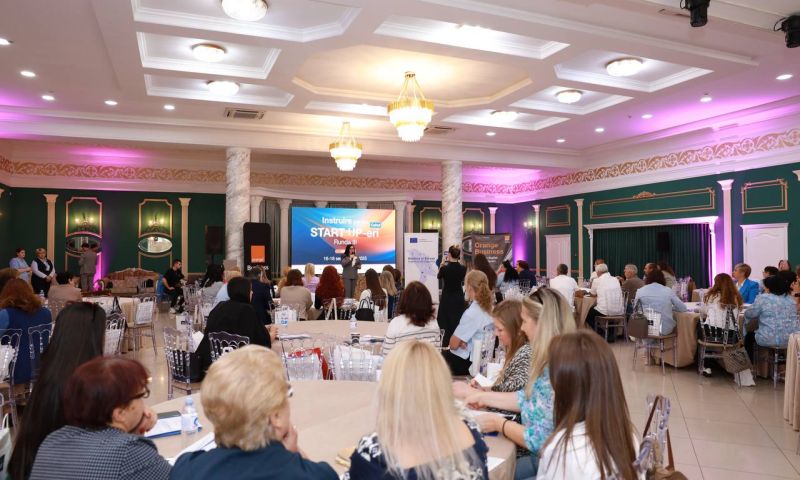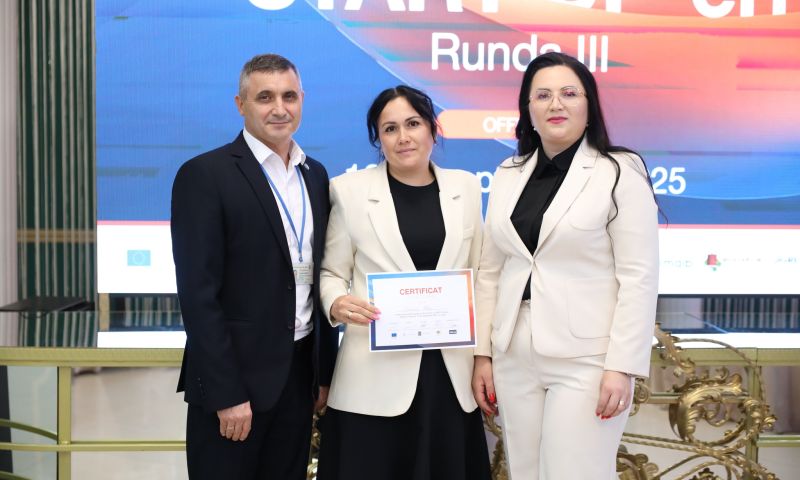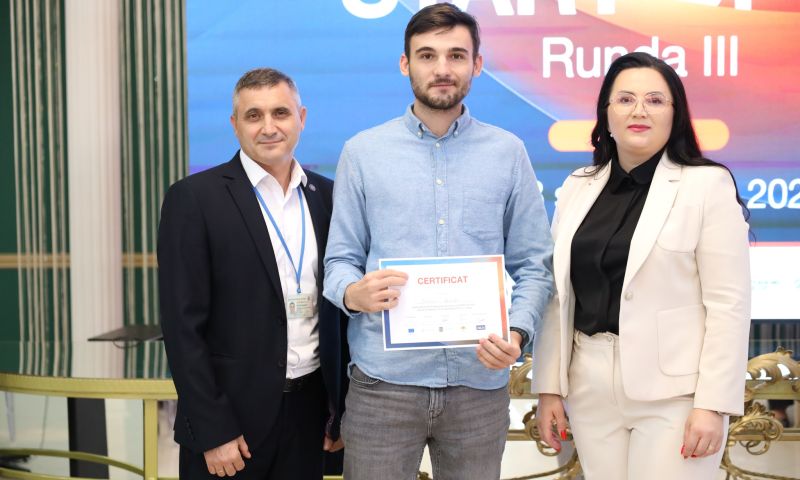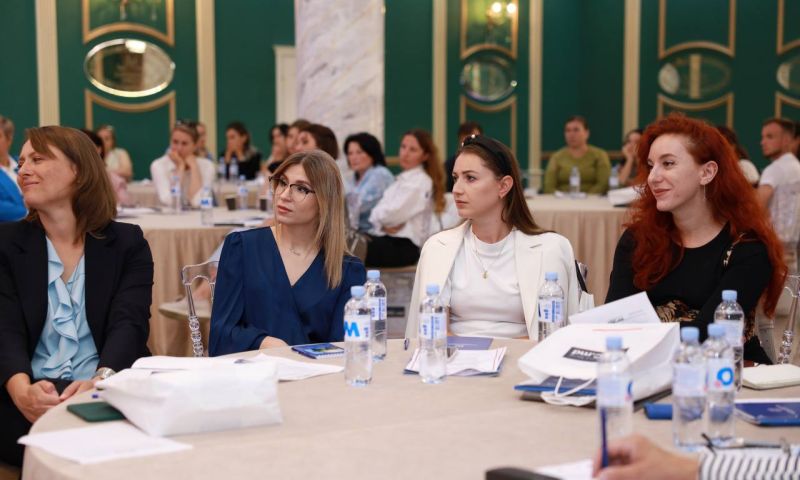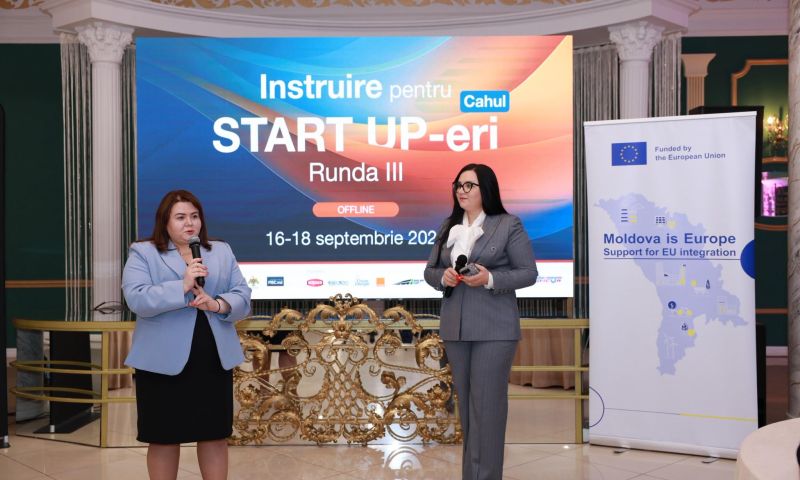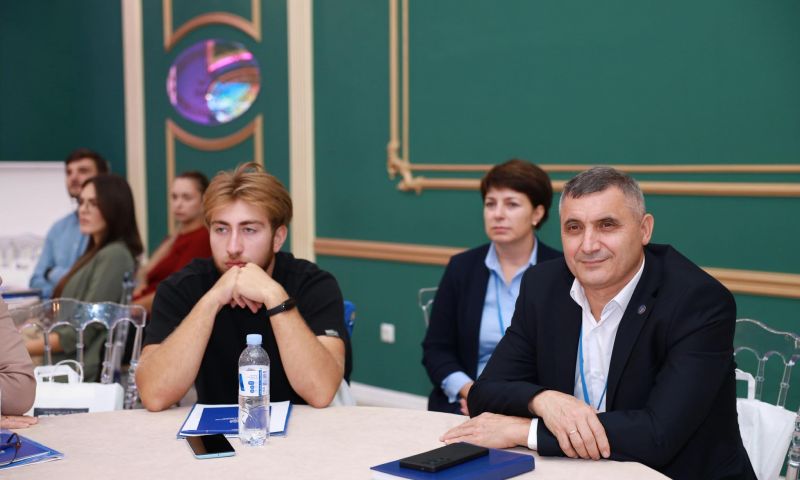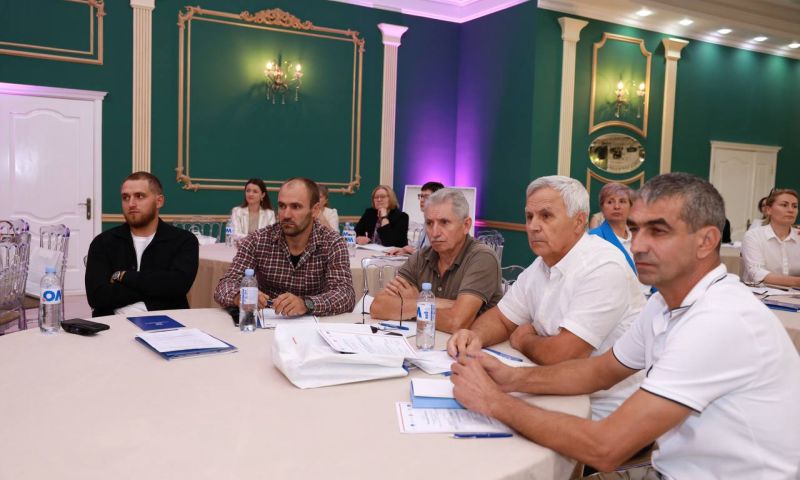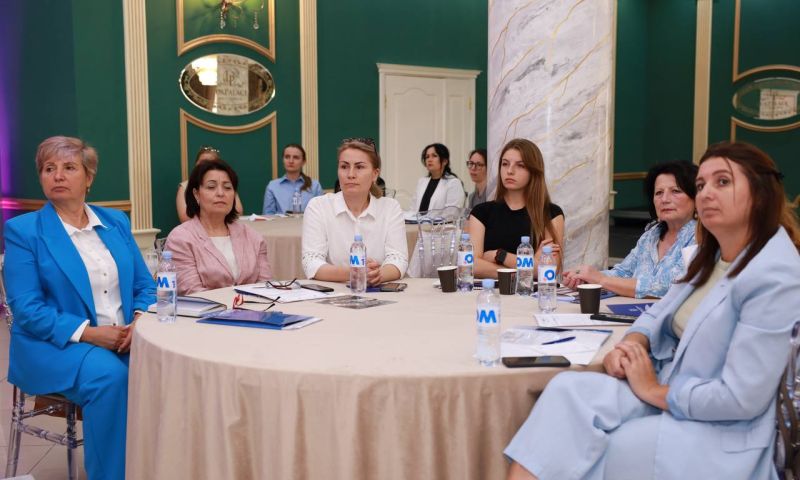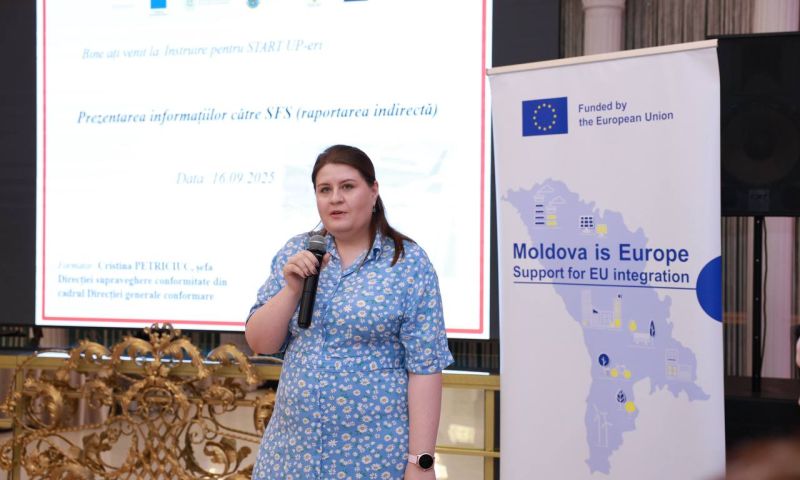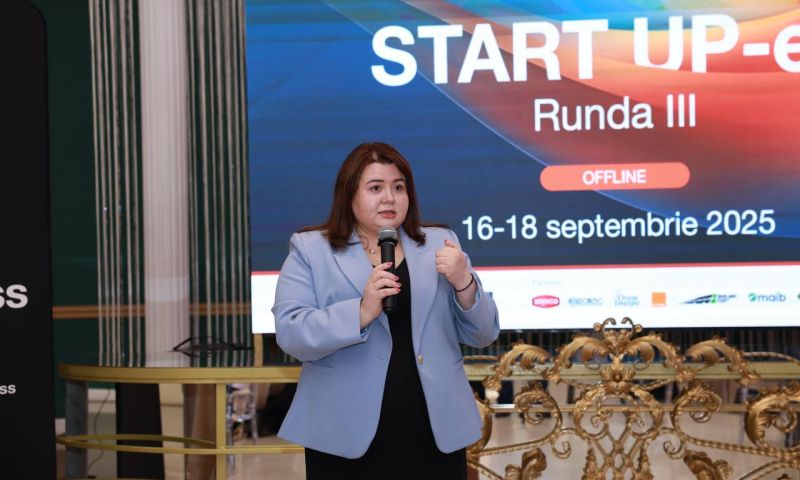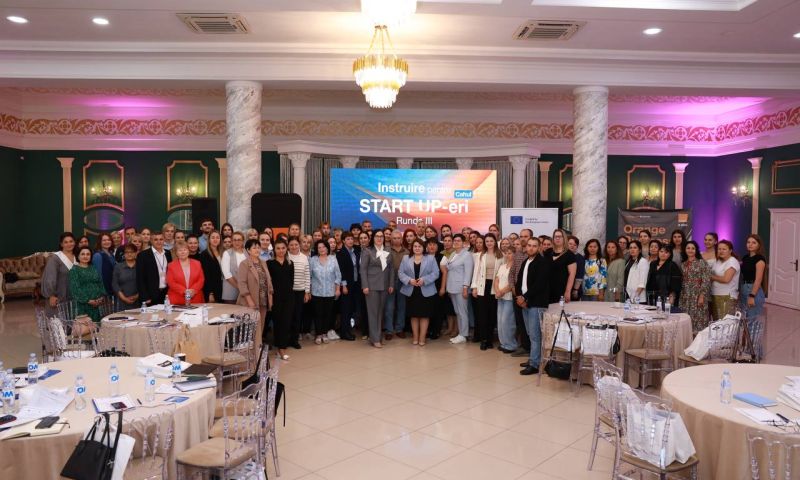Этот проект поддерживает власти Республики Молдова в создании подотчетных и устойчивых систем управления для европейской интеграции.
Он направлен на укрепление внутреннего потенциала молдавских органов государственного управления путем предоставления инструментов для их преобразования в привлекательных работодателей и обучения государственных служащих более глубокому пониманию, разработке и реализации политики и реформ, в частности в области транспонирования и внедрения acquis ЕС.
Проект поддерживает европейскую интеграцию Молдовы путем:
• Направление высокопоставленных советников ЕС (EU HLA), которые оказывают долгосрочную поддержку ключевым участникам центральной администрации в разработке и реализации реформ, а также в транспонировании и внедрении законодательства ЕС;
• Предоставление специализированных технических знаний и опыта, а также материалов для укрепления институционального потенциала и повышения эффективности;
• Создание программы стажировок для местных студентов и молодых выпускников в государственных учреждениях Молдовы. Эта инициатива направлена на привлечение молодежи к государственной службе, укрепление административного потенциала Республики Молдова.
КОМАНДА ПРОЕКТА
Страна: Литва
Сфера деятельности: Борьба с коррупцией
Учреждение: Управление по предотвращению и борьбе с отмыванием денег
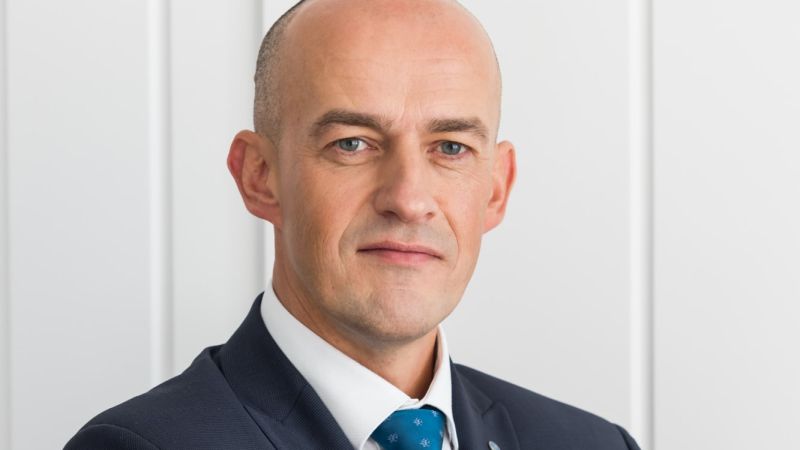
Жидрунас Барткус накопил обширный опыт на национальном и международном уровне в области организации и реализации стратегий по борьбе с коррупцией и отмыванием денег, создания и совершенствования систем возвращения и управления активами, содействия межведомственному и международному сотрудничеству. До 2023 года Жидрунас Барткус работал директором Специальной следственной службы Литвы, а также был избран и занимал должность президента Европейской партнерской сети по борьбе с коррупцией (EPAC/EACN), объединяющей более ста учреждений из почти 40 европейских стран.
Страна: Литва
Сфера деятельности: Развитие агропромышленного комплекса
Учреждение: Министерство сельского хозяйства и пищевой промышленности
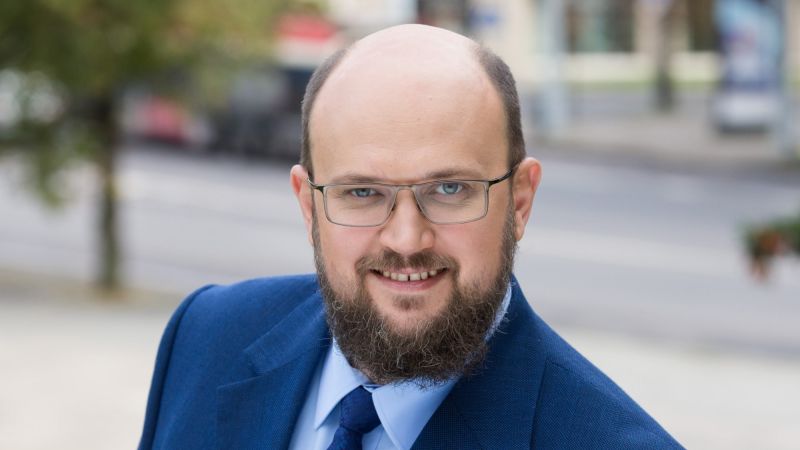
Опытный юрист с транснациональным и европейским фокусом, обладающий более чем 21-летним обширным опытом. Проработав два десятилетия на руководящих должностях в сфере агропродовольственного сектора государственной службы Литовской Республики, Роландас проявил себя в таких должностях, как начальник отдела, заместитель директора, директор, председатель, главный советник и заместитель министра.
Его путь начался с решающего вклада в процесс вступления Литвы в ЕС, где он играл непосредственную роль в выполнении юридических обязательств, связанных с главами Договора о вступлении, касающимися агропродовольственной сферы. Роландас сыграл важную роль в создании модели координации и активно представлял национальные интересы в законодательных процессах, как в Совете ЕС и его рабочих группах, так и в рабочих форумах Европейской комиссии, включая комитеты по комитетологии. Его участие простиралось на формирование различных ролей во всех последующих реформах Общей сельскохозяйственной политики (ОСП), начиная с реформы комиссара Фишлера в 2003 году.
Во время председательства Литвы в ЕС в 2013 году Роландас возглавлял Специальный комитет по сельскому хозяйству (SCA) Совета ЕС. В этой должности он руководил переговорами и завершил первую в истории реформу ОСП в рамках совместного принятия решений с Европейским парламентом, охватывающую период 2014-2020 годов. Его руководство распространялось на управление другими важными законодательными досье в области агропродовольственной сферы в то время.
Обладая непосредственным опытом последних двух десятилетий развития ОСП, включая ее проблемы, возможности и взаимодействие с другими политиками ЕС, такими как недавний «Зеленый курс» ЕС, Роландас обладает всеми необходимыми знаниями и навыками, чтобы предлагать глубокие аналитические материалы и индивидуальные консультации для удовлетворения меняющихся потребностей бенефициаров. Его непосредственное участие в различных мероприятиях и действиях литовского правительства и Министерства сельского хозяйства, связанных с экономической дипломатией и продвижением торговли национальной агропромышленной продукцией внутри и за пределами ЕС, еще больше повышает его ценность для достижения целей проекта, включая поддержку выполнения обязательств в рамках Соглашения об ассоциации (СА) и Углубленной и всеобъемлющей зоны свободной торговли (УВЗСТ).
Страна: Румыния
Сфера деятельности: Финансовые услуги
Учреждение: Национальный банк Молдовы
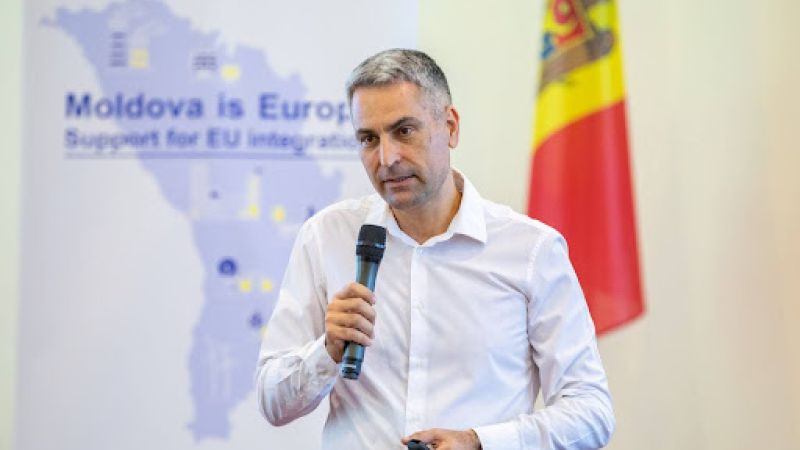
Имея более 22 лет опыта работы в Национальном банке Румынии, Николае активно участвовал в процессе сотрудничества с международными органами, ответственными за регулирование и надзор за финансовым сектором, являясь членом различных надзорных коллегий, рабочих групп и комитетов международных финансовых институтов.
До того как занять должность высокопоставленного советника ЕС по финансовым услугам в Молдове, Николае Григоре работал руководителем отдела по борьбе с отмыванием денег и мониторингу соблюдения международных санкций в департаменте надзора Национального банка Румынии. Кроме того, в качестве старшего эксперта ЕС он оказывал поддержку Национальному банку Молдовы в внедрении международных стандартов и передовой практики в области банковского надзора, а также содействовал созданию необходимого потенциала для разработки и внедрения процесса надзорного обзора и оценки в соответствии со стандартами ЕС.
Страна: Румыния
Сфера деятельности: правосудие и судебное преследование
Учреждение: Министерство юстиции, Генеральная прокуратура
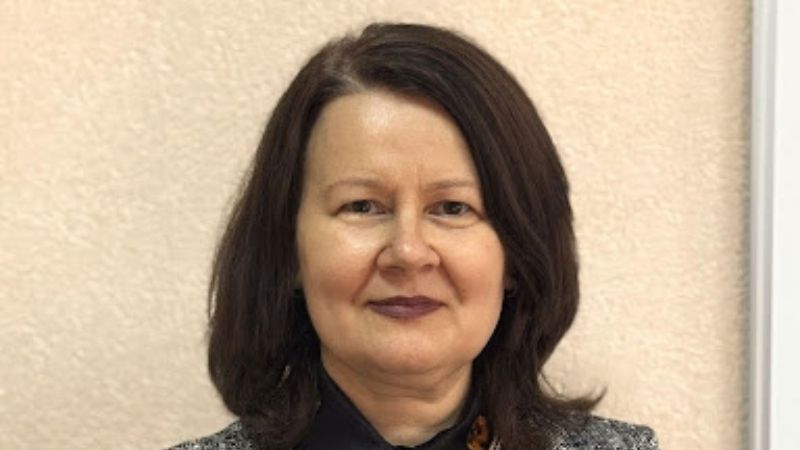
Габриэла Скутеа проработала 27 лет в прокуратуре Румынии (Министерство общественных дел) и занимала должность генерального прокурора с февраля 2020 года по февраль 2023 года. Помимо руководящих должностей в Министерстве общественных дел (2006 -2013 гг. – заместитель генерального прокурора, а также главный или заместитель прокурора в территориальных органах в уезде Брашов), она приобрела опыт работы в центральной администрации, работая в 2016 году в Министерстве юстиции Румынии в должности государственного секретаря.
В качестве высокопоставленного прокурора Габриэла принимала активное участие в заседаниях КПКЕ (формат Совета Европы) и Консультативного форума (формат государств-членов ЕС).
В 2013-2016 годах она работала в Постоянном представительстве Румынии при ЕС, занимаясь вопросами правосудия, в том числе конкретным инструментом для механизма сотрудничества и проверки Румынии (критерии независимости и эффективности судебной системы, а также борьба с коррупцией).
С сентября 2023 года она выполняет задачи советника высшего уровня по вопросам правосудия и уголовного преследования, помогая руководству Министерства юстиции в вопросах вступления в ЕС.
Страна: Румыния
Сфера деятельности: Координация реформ
Учреждение: Канцелярия премьер-министра
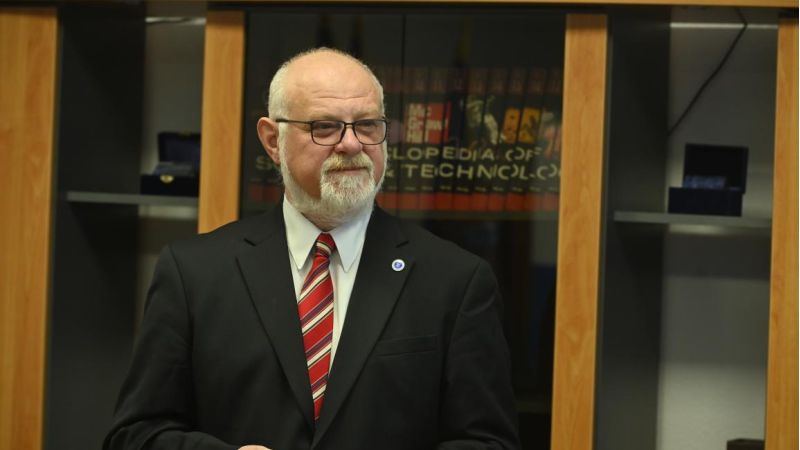
Профессор Драгош Михаел Чупару по образованию инженер-химик, имеет степень доктора наук Парижского университета 7 «Дени Дидро». Он проработал почти 7 лет на кафедре химической инженерии Йельского университета, сначала в качестве постдокторанта, а затем в качестве научного сотрудника. В конце 2005 года он вернулся в Университет нефти и газа в Плоешть, Румыния, где создал новую исследовательскую группу и получил звание профессора.
Профессор Чупару опубликовал более 70 рецензируемых статей, является соавтором 3 технических книг и владеет 5 патентами США. Участие профессора Чупару в государственном управлении и разработке политики началось с его работы в качестве члена Президентской комиссии по образованию и научно-исследовательской политике, которая, по общему мнению, внесла значительный вклад в запуск процесса секторальной реформы в Румынии, а также в Национальном совете по научным исследованиям. В 2010-2012 годах он был президентом Национального управления по научным исследованиям, курируя все программы по разработке политики и конкурентному финансированию научных исследований в Румынии.
С января 2020 года он был назначен государственным секретарем по научным исследованиям в Министерстве образования и науки, а с июня по сентябрь 2021 года – государственным секретарем по научным исследованиям в Министерстве науки, инноваций и цифровизации.
Страна: Румыния
Сфера деятельности: Служба внутренней безопасности
Учреждение: Министерство внутренних дел
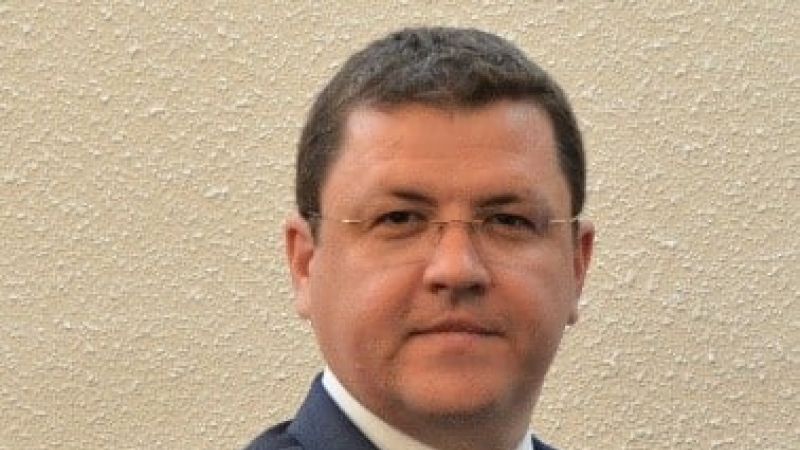
Румынский полицейский квестор с более чем 21-летним стажем, начинавший свою карьеру в качестве сотрудника по расследованию преступлений, аналитика и руководителя подразделений по анализу разведывательной информации и защите свидетелей в течение 14 лет, а также первого заместителя генерального инспектора румынской полиции.
Обширный опыт в области наращивания потенциала, разработки продуктов и процессов, направленных на повышение безопасности и защищенности граждан при максимальном повышении эффективности, подотчетности и ответственности институтов.
Обширный опыт в области наращивания потенциала, разработки продуктов и процессов, направленных на повышение безопасности и защиты граждан при максимальном повышении эффективности, подотчетности и ответственности институтов.
Международный опыт в качестве участника разработки политики и стратегий, действующего в различных качествах на европейском уровне:
• Председатель Постоянного комитета по внутренней безопасности (COSI) в рамках Совета ЕС
• Глава делегации Рабочей группы по правоохранительной деятельности при Совете ЕС
• Руководитель проекта, руководитель компонента и эксперт по вопросам твиннинга, исследований и инноваций, а также фондов сплочения
Страна: Германия
Сфера деятельности: Стратегическая координация и европейские дела
Учреждение: Администрация президента
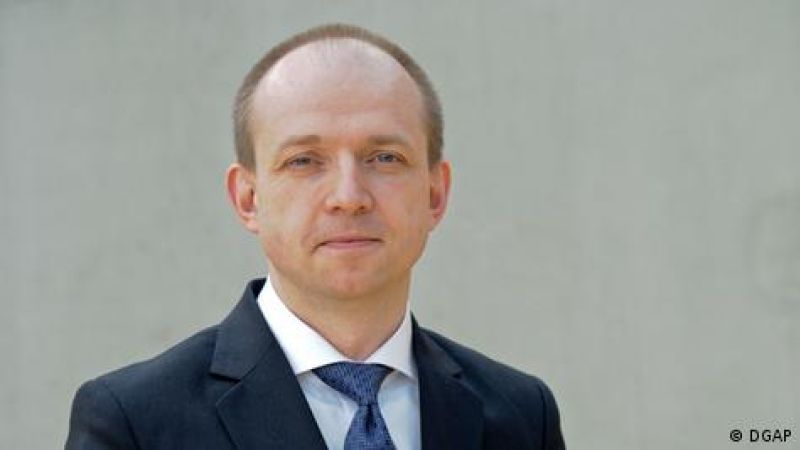
Мартин Зиг работал консультантом немецких и международных правительственных и неправительственных организаций. В последнее время он занимал должность директора Фонда Конрада Аденауэра в Румынии и Республике Молдова с 2017 по 2021 год. Зиг имеет докторскую степень по истории и политологии и преподавал политику безопасности, европейскую интеграцию и международные отношения ЕС в Университете Франкфурта-на-Одере, Свободном университете Берлина и Университете Пассау.
Страна: Румыния
Сфера деятельности: Энергетика
Учреждение: Министерство энергетики
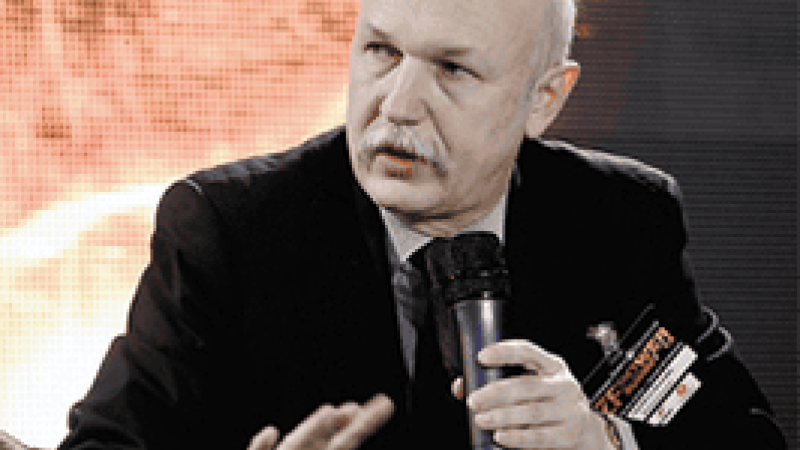
Александру Сэндулеску – опытный эксперт в области энергетики с более чем 40‑летним стажем профессиональной деятельности. Г-н Сэндулеску имеет степень магистра в области энергетики Бухарестского технического университета и докторскую степень в области энергетических рынков. Он также изучал регулирование коммунальных услуг в Университете Флориды в Гейнсвилле, США, и Университете Шербрука в Монреале. До своего нынешнего назначения в Республике Молдова г-н Сэндулеску занимал ряд ключевых должностей в энергетическом секторе Румынии, в том числе директора по энергетике в Министерстве экономики Румынии, а также генерального директора Румынского агентства по регулированию энергетики (ANRE) и научного сотрудника и директора программы в ICEMENRG, национальном институте энергетической инженерии и исследований.
В качестве высокопоставленного советника ЕС по вопросам энергетики он предоставляет молдавским властям рекомендации по вопросам политики, направленные на создание конкурентоспособных энергетических рынков на основе acquis ЕС в области энергетики; повышение энергетической безопасности поставок путем содействия созданию газовых и электрических межсетевых соединений с сетями ЕС; развитие устойчивого энергетического сектора за счет более широкого использования возобновляемых источников энергии и реализации проектов в области энергоэффективности. Перенос и внедрение законодательства ЕС в области энергетики наряду с продвижением программы реформ также являются ключевыми приоритетами г-на Сэндулеску.
Страна: Румыния
Сфера деятельности: Образование, развитие человеческого капитала и культура
Учреждение: Министерство образования, культуры и науки
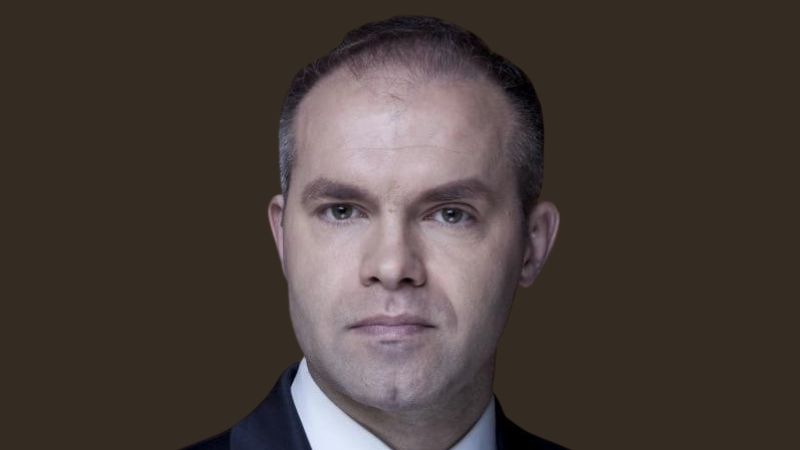
Д-р Даниэл П. Фунериу по образованию является исследователем. В 1999 году он получил степень доктора химических наук в Страсбургском университете под руководством лауреата Нобелевской премии Ж.-М. Лена. После работы в научно-исследовательском институте Скриппса в Ла-Хойя, Калифорния, и Национальном институте передовых промышленных наук и технологий в Амагасаки, Япония, в 2006 году он поступил в Мюнхенский технический университет по гранту Marie Curie Excellence Grant. В 2009 году он стал членом Европейского парламента, а позднее в том же году – министром образования, науки, молодежи и спорта Румынии. В этой должности он способствовал комплексной модернизации румынской системы образования, приняв новый закон об образовании, новое законодательство в области науки, жесткие меры по борьбе с коррупцией, а также меры по обеспечению прозрачности, борьбе с плагиатом и распределению научных грантов на основе результативности. В 2012 году он стал старшим советником президента Румынии с министерским рангом, эту должность он занимал до 2014 года. До присоединения к команде проекта «Молдова – это Европа. Поддержка интеграции в ЕС» он занимался научной деятельностью в Институте Шарля Садрона во Франции.
Руководитель команды
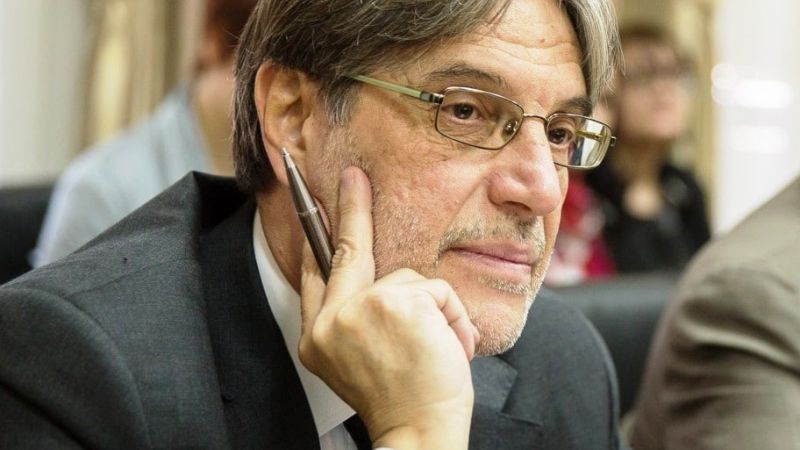
Павлос Коллиас – старший экономист с обширным многоотраслевым профессиональным опытом более 35 лет в области программирования, стратегического планирования и разработки программ и проектов. Он руководил и координировал работу многодисциплинарных многонациональных команд в рамках различных программ/проектов по наращиванию потенциала в таких областях, как региональное и местное экономическое развитие, трансграничное/транснациональное и межрегиональное сотрудничество, реформа государственного управления, развитие организационных и людских ресурсов, занятость/рынок труда и социальная политика, профессиональное образование и обучение, развитие бизнеса и малого и среднего предпринимательства.
Более 23 лет работает на международном уровне в качестве руководителя группы/старшего эксперта в рамках большого числа проектов, финансируемых ЕС (PHARE, ISPA, SAPARD, CARDS, IPA, Европейский инструмент соседства, NDICI) в 14 странах-кандидатах или ассоциированных странах ЕС в Центральной и Восточной Европе, на Балканах и в регионе соседства/Восточного партнерства. Павлос Коллиас имеет дополнительный опыт работы в качестве специалиста по институциональному управлению в Всемирном банке на Ближнем Востоке.
Обширный международный опыт в области консалтинга, направленный на:
• оценку и совершенствование структур управления на центральном, региональном и местном уровнях;
• поддержку в разработке национальных и отраслевых программ, а также в разработке национальных и отраслевых/региональных стратегий и политики развития;
• оказание технической помощи и поддержки в укреплении институционального потенциала органов государственной администрации, центральных министерств и отраслевых/региональных агентств.
• выполнение функций, возложенных на управляющие, платежные органы и/или посреднические органы в странах, находящихся в процессе присоединения к ЕС, и/или оказание им поддержки на этапах после присоединения,
• оказание помощи правительствам стран-партнеров ЕС в реализации соглашений об ассоциации с ЕС в целях укрепления их административного потенциала, разработки/управления процессом построения партнерских отношений, разработки/реализации национальных стратегий и программ развития, региональных планов развития и секторальных/региональных оперативных программ, интеграции национальных секторальных/региональных стратегических приоритетов с собственными политическими целями регионов, использования их эндогенного потенциала и сравнительных преимуществ для повышения региональной и местной конкурентоспособности, а также разработки соответствующих проектных портфелей.
Ключевой эксперт 2 — Институциональные реформы и правовые вопросы
Заместитель руководителя команды
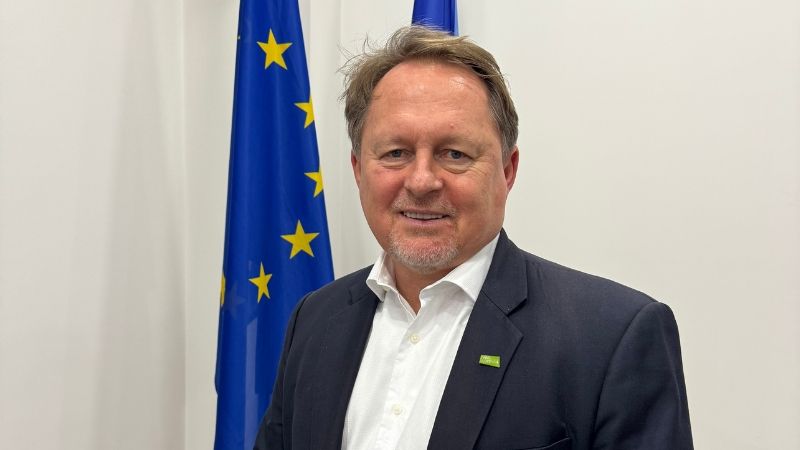
Примош Вехар – юрист из Словении, имеет ученую степень магистра политических наук с специализацией в области организации сближения законодательства в процессе вступления в ЕС. Он начал свою карьеру (которая длится уже более 30 лет) в государственной администрации Словении, работая юристом-разработчиком законодательных актов, ответственным за организацию сближения законодательства и реализацию Соглашения об ассоциации в рамках Государственного управления по законодательству. Он также проработал один год в судебной системе, в течение которого сдал экзамен на право заниматься адвокатской деятельностью.
Во время переговоров о вступлении Словении в ЕС он оказывал юридическую поддержку основной переговорной группе и активно работал над сближением законодательства.
В последние два года переговоров он занимал должность секретаря Комитета по делам ЕС в Национальном парламенте, помогая создать комитет и внести изменения в парламентский регламент в рамках подготовки к вступлению в ЕС. Он также входил в группу, которая подготовила поправки к конституции и закон о сотрудничестве между Национальным собранием и правительством по вопросам ЕС.
Его участие во всех трех ветвях власти (исполнительной, судебной и законодательной) во время и сразу после процесса присоединения позволило ему в 2005 году перейти к независимой юридической консультативной деятельности, в первую очередь оказывая поддержку странам Западных Балкан в реализации финансируемых ЕС проектов, связанных с сближением законодательства и организацией переговоров о присоединении.
Примош в течение пяти лет работал старшим советником в ОЭСР/SIGMA, оказывая поддержку реформе государственного управления в странах Западных Балкан и Украине. С 2020 года он работает в Молдове в качестве руководителя группы и эксперта по сближению законодательства в рамках финансируемого ЕС проекта, направленного на поддержку реализации Соглашения об ассоциации, сближение законодательства и организацию процесса вступления в ЕС.
С сентября 2025 года он занимает должность заместителя руководителя команды, ответственного за институциональную реформу и сближение законодательства в рамках финансируемого ЕС проекта «Молдова – это Европа. Поддержка интеграции в ЕС»
Ключевой эксперт 3 – Экономические реформы
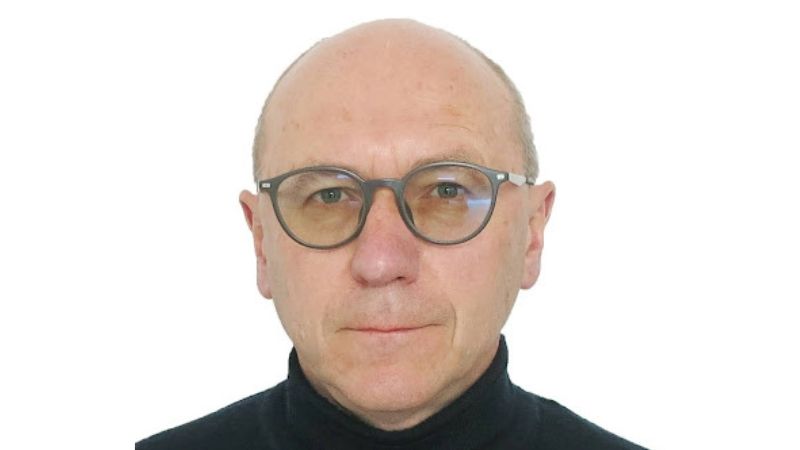
Клаудиус Маниокас имеет степень доктора социальных наук Вильнюсского университета (за диссертацию «Расширение ЕС и европеизация»). Более 10 лет он занимался вопросами вступления Литвы в ЕС и завершил свою карьеру на государственной службе в должности заместителя главного переговорщика и заместителя генерального директора Европейского комитета при правительстве Литвы.
С 2004 года, в качестве председателя совета директоров консалтинговой компании ESTEP, он руководил множеством консультационных и исследовательских проектов, посвященных европейской интеграции и развитию, в частности реформам государственного сектора, управлению процессом вступления в ЕС, а также планированию и оценке мероприятий структурных фондов ЕС, сотрудничая со службами Европейской комиссии, SIGMA, ЕИБ, Всемирным банком и другими организациями.
В течение последних двадцати лет он консультирует правительства стран Восточной Европы и Западных Балкан по этим вопросам.
Его последними должностями были руководитель группы проекта «Поддержка европейской интеграции» в Албании (2021-2024) и эксперт по отбору проектов для программы Ukraine2EU (2024-2025).
Менеджер по коммуникациям
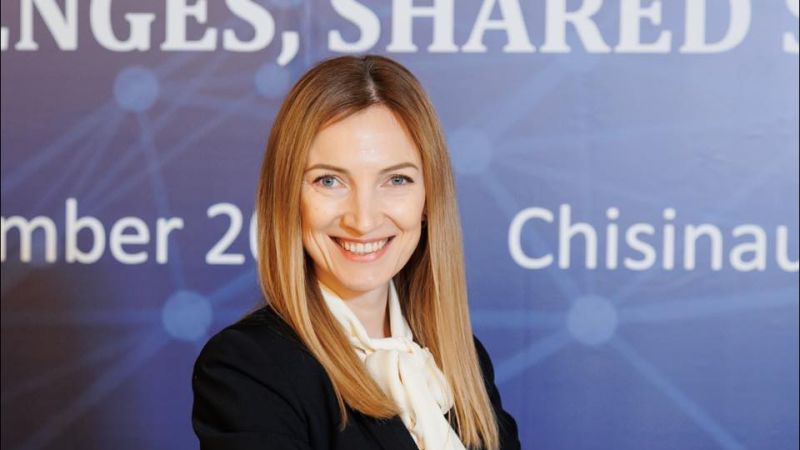
Яна имеет степень магистра в области международных отношений и 16-летний профессиональный опыт в сфере стратегических коммуникаций. Она возглавляла несколько крупномасштабных информационно-просветительских кампаний, в том числе на национальном уровне, мероприятия высокого уровня, разработку и обслуживание веб-сайтов государственных учреждений и партнеров по развитию, а также разработку многочисленных информационных и рекламных продуктов.
Она начала свою карьеру в качестве журналиста, а с 2009 года работает над несколькими проектами международных партнеров по развитию в Молдове, среди которых ООН, Всемирный банк, ПРООН, ЕС, отвечая за коммуникационные и информационные кампании в таких областях, как реформа центральной государственной администрации, права человека и гендерное равенство, координация помощи в целях развития, молодежная политика.
Она также имела опыт работы в качестве советника и пресс-секретаря Министерства молодежи и спорта. В 2014 году Яна присоединилась к Миссии высокопоставленных советников ЕС в качестве эксперта по коммуникациям и с тех пор отвечала за коммуникации нескольких миссий. В 2025 году она стала ключевым экспертом по коммуникации в проекте «Молдова – это Европа. Поддержка интеграции в ЕС». Она также имеет степень по английской и немецкой филологии.
Младший эксперт/помощник высокопоставленного советника ЕС по финансовым услугам
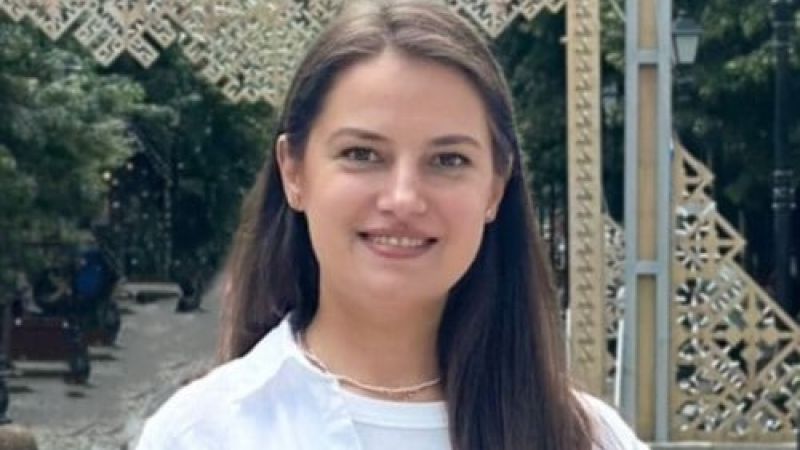
У Аны более 12 лет профессионального опыта, работая как с государственными учреждениями, так и с международными организациями. Она обладатель двух степеней магистра в области экономики и международных отношений.
На протяжении своей карьеры Ана занимала должности в различных министерствах, где участвовала в адаптации национального законодательства к acquis ЕС, способствовала разработке министерских, межправительственных и международных соглашений и контролировала их выполнение. Ее опыт включает управление проектами, финансовый надзор и построение стратегических отношений с заинтересованными сторонами, достижение ключевых результатов проектов при обеспечении соблюдения требований доноров.
До присоединения к команде проекта «Миссия высокопоставленных советников ЕС» и проекта «Молдова – это Европа. Поддержка интеграции в ЕС» Ана работала в рамках твиннинг-проектов, финансируемых ЕС, последний из которых был посвящен «Укреплению надзора, корпоративного управления и управления рисками в финансовом секторе» и направлен на оказание поддержки Национальному банку Молдовы в проведении реформ, связанных с усилением надзора, корпоративного управления и управления рисками в финансовом секторе.
Свободно владеет румынским и английским языками, прошла специализированную подготовку по международной политике, вопросам честности и неподкупности, а также дипломатической коммуникации в нескольких учреждениях ЕС.
Младший эксперт/помощник высокопоставленного советника ЕС по вопросам развития агропромышленного комплекса
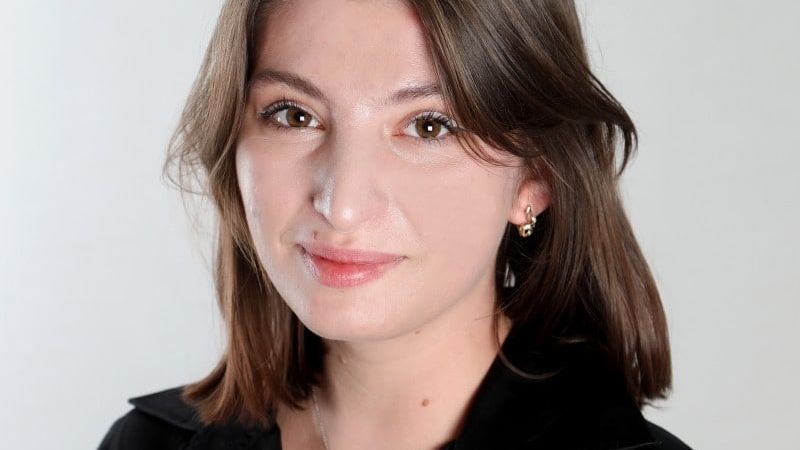
Кэтэлина обладает обширным и постоянно расширяющимся опытом в области устойчивого развития, агропродовольственной политики и реализации проектов. Она приобрела первый опыт, работая над проектами в области устойчивого развития и охраны окружающей среды в Бухаресте, а затем накопила практические знания в Молдове, поддерживая международные инициативы в области развития агропродовольственного и экологического секторов.
Она принимала участие в организации визитов высокого уровня, координации миссий экспертов, подготовке аналитических отчетов и содействии проведению мероприятий с международными партнерами. Эти обязанности укрепили ее понимание концепций устойчивого развития, продовольственной безопасности и Целей Организации Объединенных Наций в области устойчивого развития, особенно тех, которые касаются охраны окружающей среды и устойчивых агропродовольственных систем.
Навыки Кэтэлины в области лидерства, коммуникации и межкультурного сотрудничества были дополнительно усовершенствованы благодаря таким инициативам, как Программа молодых европейских послов, а также благодаря ее разнообразному международному образованию.
Она получила степень бакалавра по химии в Нидерландах и степень MBA в Бухаресте, что дало ей прочную основу для эффективной работы с экспертами из разных культурных и институциональных сред.
Младший эксперт/помощник высокопоставленного советника ЕС по вопросам внутренней безопасности
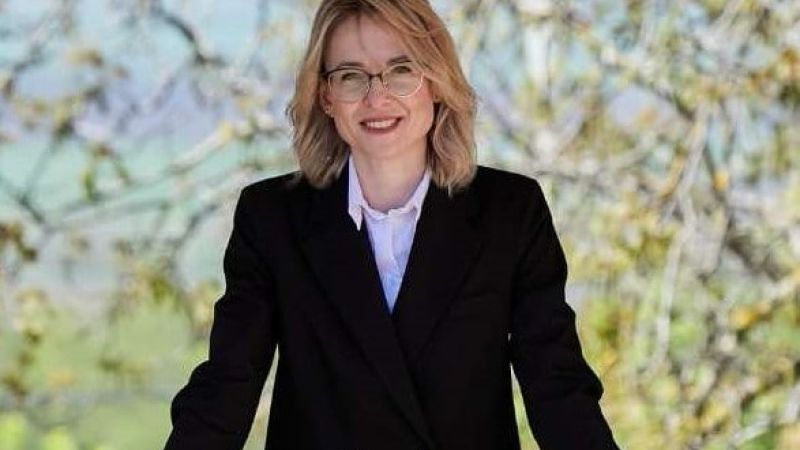
Корнелия имеет обширный опыт работы в рамках инициатив, поддерживаемых международными донорами как в сфере государственного управления, так и в гражданском обществе. Ее предыдущий опыт работы в качестве координатора по обучению и местного координатора, а также успешная практика в планировании, организации и реализации проектных мероприятий позволили ей приобрести навыки взаимодействия с заинтересованными сторонами, консультирования по вопросам управления проектами, обеспечения качества результатов, соблюдения бюджета и составления проектной документации. Корнелия также оказывала помощь высокопоставленным советникам ЕС в сфере образования и финансово-банковского сектора, а также работала переводчиком/синхронным переводчиком, предоставляя языковую и логистическую поддержку.
Младший эксперт/помощник высокопоставленного советника ЕС по вопросам борьбы с коррупцией
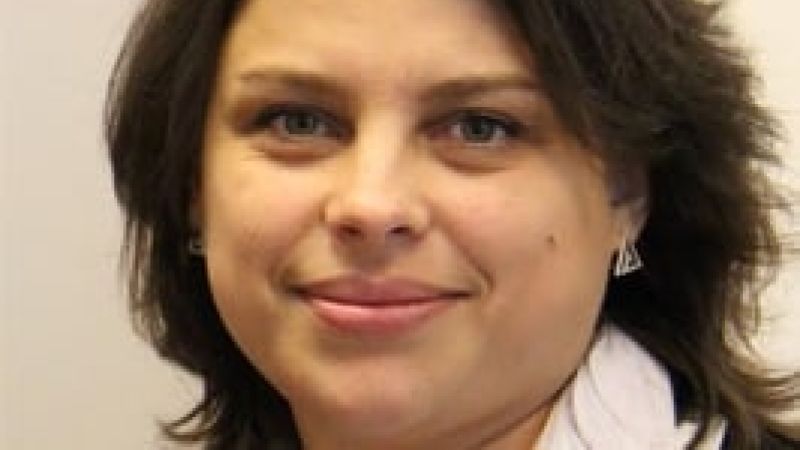
Имея степень лиценциата по испанскому и английскому языкам, а также по бизнес-праву, Кристина обладает более 15 годами практического опыта в области письменного и устного перевода, работая переводчиком/устным переводчиком на разовой (фриланс) и постоянной основе в различных проектах, финансируемых ЕС и USAID. Она также приобрела опыт работы в качестве местного координатора, оказывая помощь и поддержку во время миссий Deloitte Consulting в Молдове. Кристина – внимательный и надежный человек, открытый для новых знаний и приверженный соблюдению сроков.
Младший эксперт/помощник высокопоставленного советника ЕС по вопросам правосудия и уголовного преследования
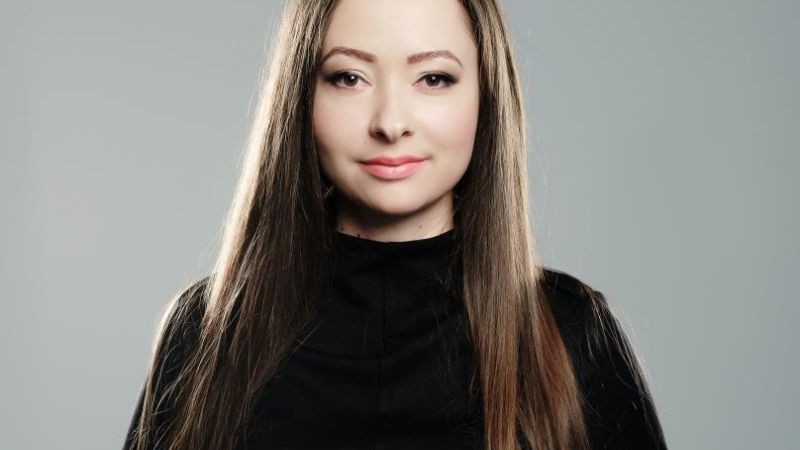
Марина – юрист с пятилетним опытом работы в юридической сфере. Ее специализация –бизнес-операции и коммерция, слияния и поглощения, корпоративное управление и реструктуризация, судебные споры.
Марина ранее консультировала по проектам, связанным с инфраструктурой и энергетикой, а также участвовала в подготовке различных публикаций по вопросам молдавского регулирования, ведения бизнеса и реформы судебной системы.
В настоящее время ее интересы сместились в сторону банковского и финансового сектора. Марина имеет степень бакалавра и магистра права.
Младший эксперт/помощник высокопоставленного советника ЕС по координации реформ
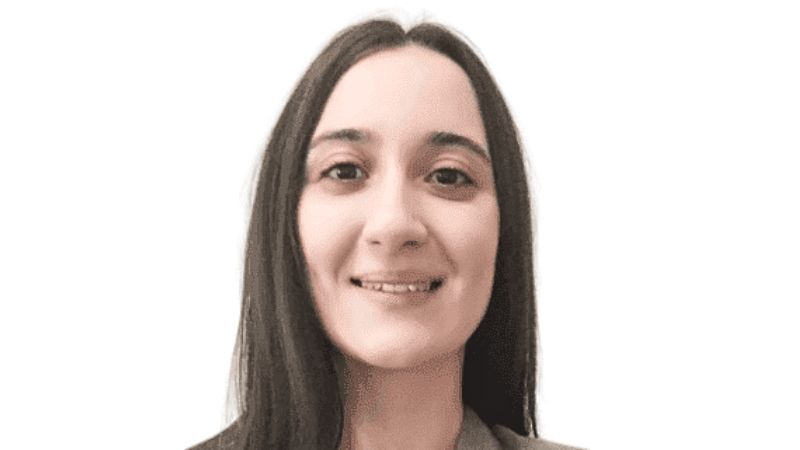
Ина Камерзан имеет степень бакалавра и магистра экономики Академии экономических исследований Молдовы и прошла интенсивную программу по европейскому праву и экономике в Рижской высшей школе права. Она имеет солидный опыт работы с международными организациями, включая реализацию программ и проектов, а также консультирование по вопросам финансирования донорами.
Ее профессиональный опыт включает работу с Бюро Совета Европы в Кишиневе над антикоррупционным проектом, тесно связанным с процессами национальных реформ и внедрением международных стандартов. Она также обладает опытом поддержки реализации образовательных программ в Американских советах по международному образованию, а также предоставления консультационной и аналитической поддержки сельскохозяйственным проектам, финансируемым международными донорами.
Младший эксперт/помощник высокопоставленного советника ЕС по вопросам образования, развитие человеческого капитала и культура
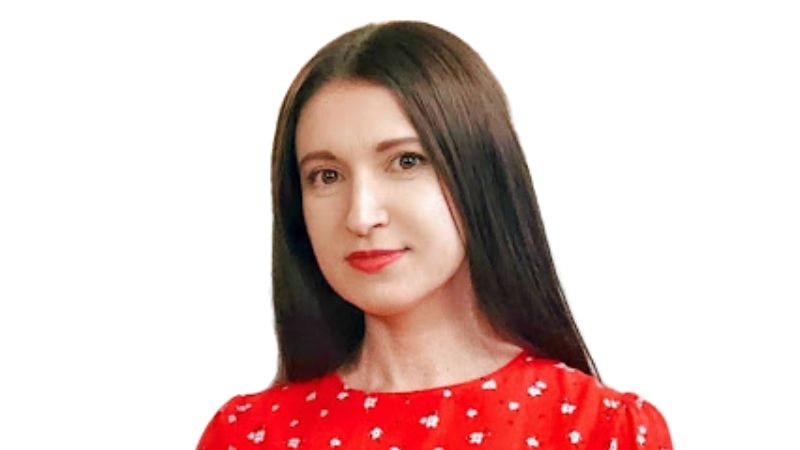
Чезара Чебану – опытный специалист с более чем десятилетним стажем работы в области европейской интеграции, образовательной политики и международного сотрудничества, имеющий профессиональный опыт в реализации инициатив, финансируемых ЕС, и в консульской дипломатии.
С 2019 года она является ключевым членом Миссии высокопоставленных советников Европейского Союза в Молдове, выступая в качестве младшего неключевого эксперта и помощника высокопоставленного советника
ЕС по вопросам образования и исследований. С 2025 года она занимает ту же должность в проекте «Молдова – это Европа. Поддержка интеграции в ЕС».
В этой должности она поддерживает реализацию национальных реформ в области образования, науки, молодежной политики, спорта, дуального образования и культуры. Ее предыдущий опыт включает консульскую службу Республики Молдова в Италии и участие в твиннинг-программе ЕС по защите культурного наследия.
Она имеет степень магистра в области европейской интеграции: политика ЕС и планирование проектов сообщества, полученную в Университете Падуи (Италия), а также вторую степень магистра в области психологии труда и организационной психологии, полученную в Молдавском государственном университете.
Чезара известна своим дипломатическим складом ума, организаторскими способностями, межкультурной чувствительностью и приверженностью государственной службе и европейским ценностям.
ПРОГРАММА СТАЖИРОВКИ
ТРЕБОВАНИЯ К КАНДИДАТАМ
- Гражданство Республики Молдова
- Обучение в высшем учебное заведении Республики Молдова или за рубежом, первый цикл (бакалавриат/лицензия) или второй цикл (магистратура), или недавний выпускник высшего учебного заведения;
- Возраст до 30 лет на момент подачи заявки на участие в программе;
- Свободное владение румынским языком;
- Знание английского языка на продвинутом уровне (не ниже B2);
- Активное участие во внеучебных мероприятиях, активная гражданская позиция;
- Хорошие академические результаты (на основе среднего показателя полученных заявок);
- Мотивация к карьере на государственной службе в Республике Молдова.


ПРОДОЛЖИТЕЛЬНОСТЬ И МЕСТОПОЛОЖЕНИЕ
Продолжительность стажировки – два месяца, ориентировочно с 30 июня по 29 августа 2025 года.
Стажеры будут размещены в государственных учреждениях центрального уровня, ориентировочно в тех, где работают HLA ЕС. Они также могут быть направлены в учреждения, где нет назначенного HLA ЕС, но которые все еще находятся под наставничеством HLA ЕС, если будет подтвержден интерес со стороны учреждения и соответствие секторам с участием HLA ЕС и/или темам кластеров переговоров между ЕС и Республикой Молдова.
Стажерами в их повседневной деятельности будут руководить HLA ЕС и/или старшие неключевые эксперты проекта и сотрудники принимающего учреждения. В конце программы стажировки сотрудники принимающего учреждения представят отчет об оценке работы стажеров.
Стажировка рассчитана на полный рабочий день, с вовлеченностью 8 часов в день, с физическим присутствием. Участие в программе с частичной занятостью не допускается.
ТЕМА ПРОГРАММЫ СТАЖИРОВКИ
Программа стажировки сконцентрирована на темах отношений между ЕС и Республикой Молдова, а именно на процессе интеграции в ЕС.
Учитывая текущий этап отношений между ЕС и Республикой Молдова, программа 2025 года будет посвящена темам, связанным с переговорами о вступлении в ЕС.


СТИПЕНДИЯ
Стипендия на стажировку будет предоставлено максимум 70 стажерам. Кроме того, при наличии большего числа потенциальных стажеров и подтвержденной заинтересованности и готовности принимающих учреждений, могут быть предоставлены бесплатные стажировки.
За каждый месяц стажировки выплачивается стипендия в размере 200 евро брутто в MDL по курсу INFOREURO в платежном месяце (https://ec.europa.eu/info/funding-tenders/procedures-guidelines-tenders/information-contractors-and-beneficiaries/exchange-rate-inforeuro_ro).
Из этой суммы вычитаются налоги в соответствии с действующим законодательством.
Стипендия выплачивается при условии участия в программе стажировки в течение полного рабочего дня, что подтверждается заполненным листом учета рабочего времени с кратким описанием деятельности, подписанным стажером и соответствующим HLA ЕС (ментором).
Стипендия за второй месяц будет выплачиваться при условии заполнения табеля учета рабочего времени, сопровождаемого итоговым отчетом.
ЗАЯВКА


ОТБОР
Отбор будет проводиться в несколько этапов.
На первом этапе будет проведен предварительный отбор, в ходе которого будет проверена полнота представленных заявок и их соответствие требованиям, изложенным в разделе «КРИТЕРИЯХ ПРИЕМЛЕМОСТИ». Предварительный отбор будет проводиться сразу после окончания срока подачи заявок, в период (ориентировочно) с 20 по 27 мая. Кандидаты будут считаться прошедшими предварительный отбор, если они соответствуют всем квалификационным требованиям. Неполные заявки будут автоматически отклонены.
Второй этап отбора будет включать собеседование с членами отборочной комиссии, состоящей из представителей Делегации Европейского Союза, Правительства и Миссии Советников высокого уровня ЕС. Собеседования будут проводиться на английском и румынском языках и будут посвящены темам, связанным с интеграцией в ЕС. Ориентировочные сроки проведения собеседований – 28 мая — 4 июня. Собеседования будут организованы в основном с физическим присутствием, но могут проводиться и в режиме онлайн. Члены отборочной комиссии заполнят оценочную анкету, отметив в ней свои оценки таких аспектов, как свободное владение английским языком, навыки презентации, мотивация, знание отношений между ЕС и Молдовой, знание политических, экономических и социальных аспектов и т.д.
По результатам собеседований будет составлен рейтинг кандидатов, начиная с самых высоких баллов. В программу будут приняты 70 кандидатов, набравших наибольшее количество баллов. В качестве альтернативы члены отборочного комитета могут договориться о минимальном балле, который считается проходным, и количество отобранных стажеров будет определяться теми, кто набрал минимальный балл.
РАСПРЕДЕЛЕНИЕ ПО ПРИНИМАЮЩИМ УЧРЕЖДЕНИЯМ
Отборочная комиссия распределит отобранных участников по различным принимающим организациям, исходя из их академической (и профессиональной) подготовки, при условии наличия вакансий для стажировки в принимающей организации и наставника (наставников).
Отборочная комиссия не может гарантировать, что стажер будет распределен в конкретное учреждение/сектор, но сделает все возможное, чтобы распределить его «наилучшим образом», принимая во внимание профиль стажера и потребности принимающих учреждений.
После распределения в конкретное учреждение, стажеры могут быть вовлечены в деятельность другого учреждения, координируемую HLA ЕС, при наличии интереса со стороны стажера и наличии наставника (наставников) в последнем, а также при условии, что письменное уведомление будет представлено сотрудникам проекта.


ДЕЯТЕЛЬНОСТЬ И ПОЛУЧЕНИЕ СЕРТИФИКАТОВ
Стажеры по просьбе своего наставника (наставников) будут выполнять работу, связанную с обязанностями принимающего их учреждения. Стажеры не могут участвовать в мероприятиях, не относящихся к сфере ответственности принимающего учреждения.
Стажеры вместе с другими участвующими в программе стажерами будут участвовать в совместных мероприятиях, организованных учреждениями-бенефициарами и/или проектом, таких как круглые столы, конференции, дебаты и т.д. Участие в таких совместных мероприятиях является обязательным и рассматривается как часть программы стажировки.
После успешного завершения двухмесячной стажировки и предоставления итогового отчета стажеры получат сертификат, подтверждающий их участие в программе.
КОНТРАКТЫ, ОПЛАТА И ОТЧЕТНОСТЬ
Стажеры подпишут контракт на стажировку в рамках проекта «Молдова – это Европа: поддержка интеграции в ЕС». Для подписания контракта стажеры должны предоставить копию удостоверения личности и подтверждение об обучении/дипломе.
Для получения ежемесячной стипендии стажеры должны иметь действующий банковский счет в Республике Молдова в национальной валюте. Им следует предоставить свои банковские реквизиты вместе с подписанным контрактом в начале программы стажировки.
Стажеры будут ежемесячно заполнять табели учета рабочего времени, кратко описывая свою ежедневную деятельность, и приносить оригиналы этих табелей, подписанные ими и заверенные их наставниками, в офис проекта в последний день каждого месяца стажировки.
В конце периода стажировки стажеры заполняют итоговый отчет, в котором описывают свой общий опыт, отмечают его положительные и отрицательные стороны, а также вносят предложения по улучшению сектора, в котором они проходили стажировку.


ГРАФИК
Программа стажировки 2025 года будет проходить по следующему графику:
- 15 апреля — 20 мая – подача заявок
- 20 мая — 27 мая – предварительный отбор кандидатов
- 28 мая — 4 июня – собеседования с отобранными кандидатами
- 4 июня — 6 июня – ранжирование и принятие решений о принятии кандидатов в Программу и распределении по учреждениям
- 9 июня — 13 июня – уведомление отобранных кандидатов
- 16 июня — 27 июня – подписание контрактов
- 30 июня – начало программы стажировки
- 29 августа – окончание программы стажировки, вручение сертификатов, праздничная церемония
Сроки могут быть незначительно скорректированы в зависимости от складывающихся обстоятельств.
НАГЛЯДНОСТЬ
Кандидаты и отобранные участники, подавая заявку, соглашаются на размещение информации в материалах, связанных с программой стажировки: пресс-релизах, сообщениях в социальных сетях, фотографиях и видео, интервью и т.д.


ЛЬГОТЫ
После успешной оценки наставником учреждения-бенефициара выпускники программы получат следующие льготы при поступлении на государственную службу: отсутствие конкурса при подаче заявления на вакансию в том же учреждении, где они проходили стажировку, а также отсутствие испытательного срока при поступлении в подразделение учреждения, где они проходили стажировку – при условии прохождения еще как минимум одного месяца стажировки (т.е. в общей сложности трех месяцев стажировки).
Подробный механизм льгот описан в Законе № 123 от 2023 года об оплачиваемой стажировке в государственных учреждениях. Льготы будут предоставляться при условии точного выполнения условий, предусмотренных национальным законодательством. Организаторы могут принять решение о перераспределении стажера в государственную программу стажировок или оставить его в рамках программы проекта (в случаях, когда принимающее учреждение не является частью государственной программы оплачиваемых стажировок в государственных учреждениях).
НОВОСТИ
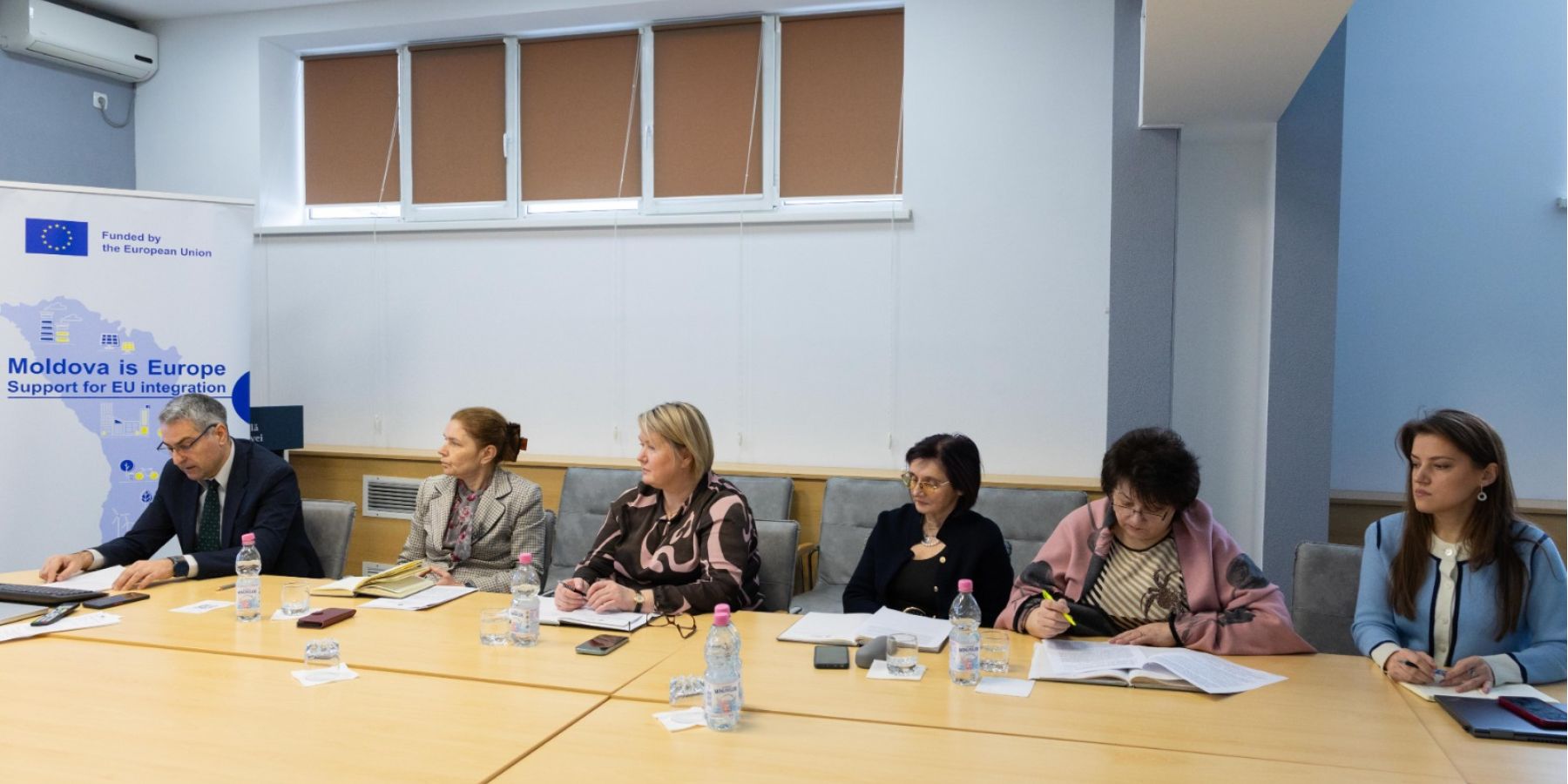
Более 100 профессионалов из банковской сферы укрепляют свои знания о новых правилах в области операционного риска
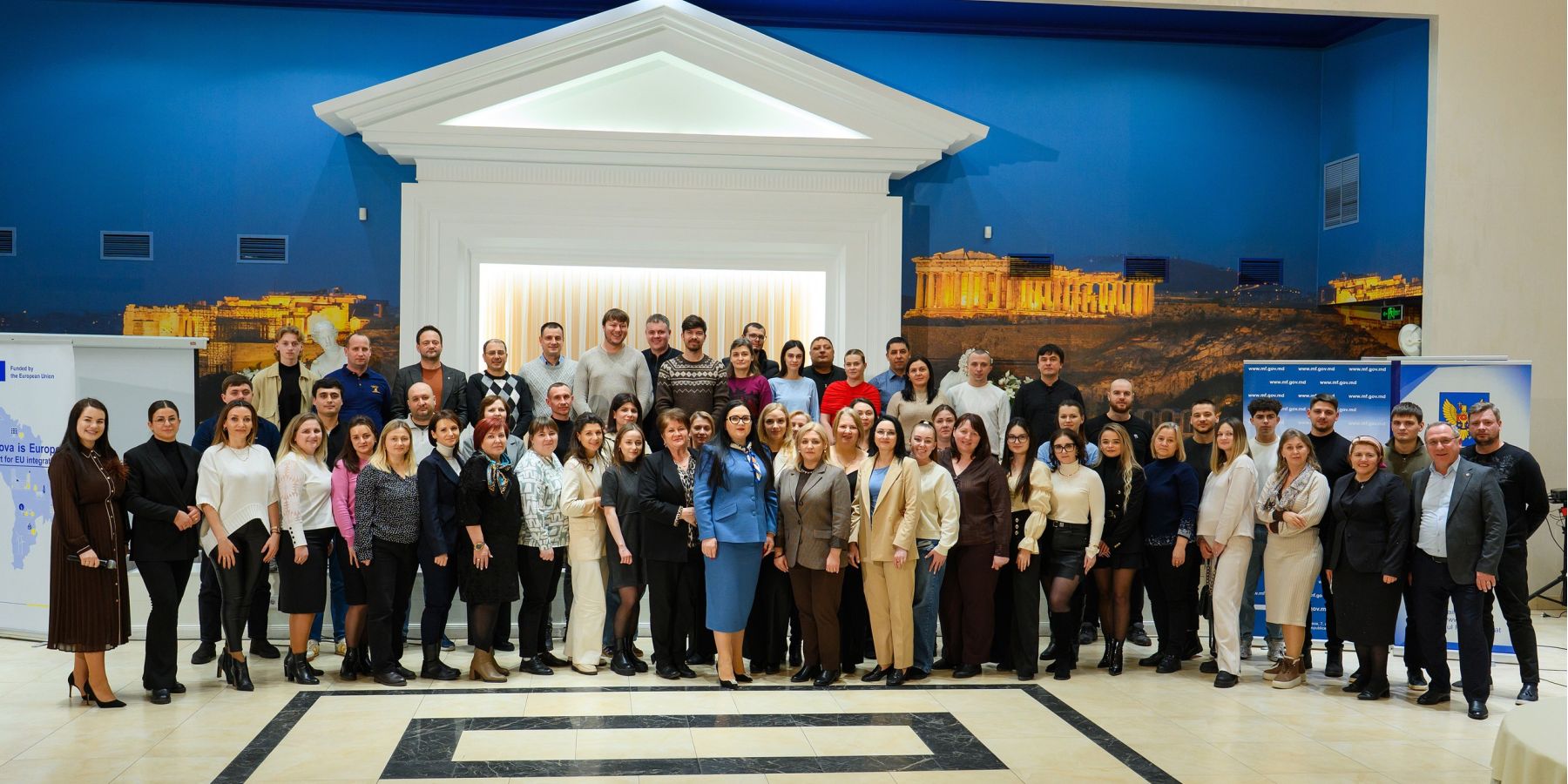
Около 100 предпринимателей из центральных районов Молдовы прошли обучение по вопросам создания и ведения бизнеса при поддержке ЕС
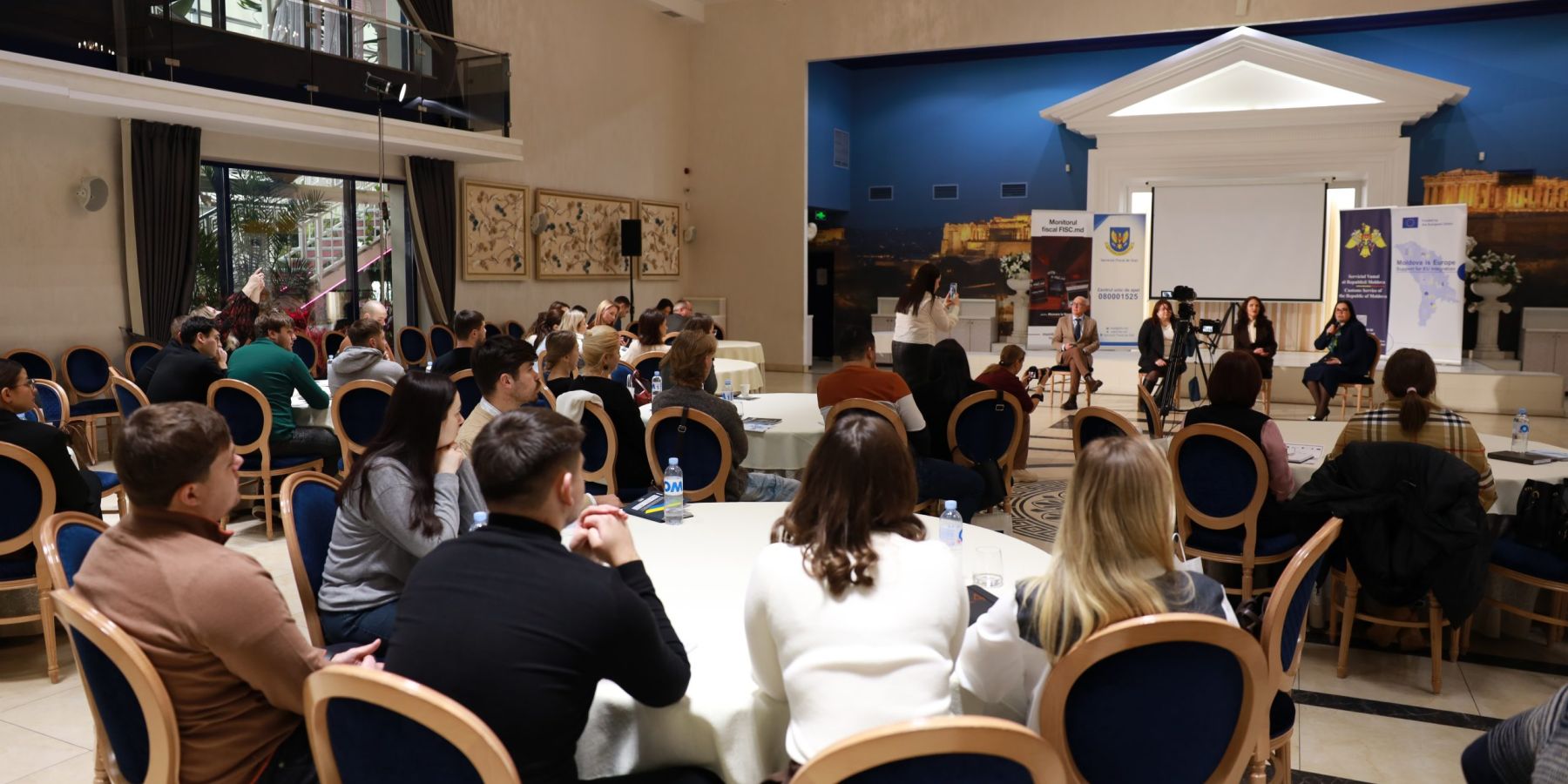
Предприниматели из центральных регионов страны начинают трехдневный учебный курс, организованный при поддержке ЕС
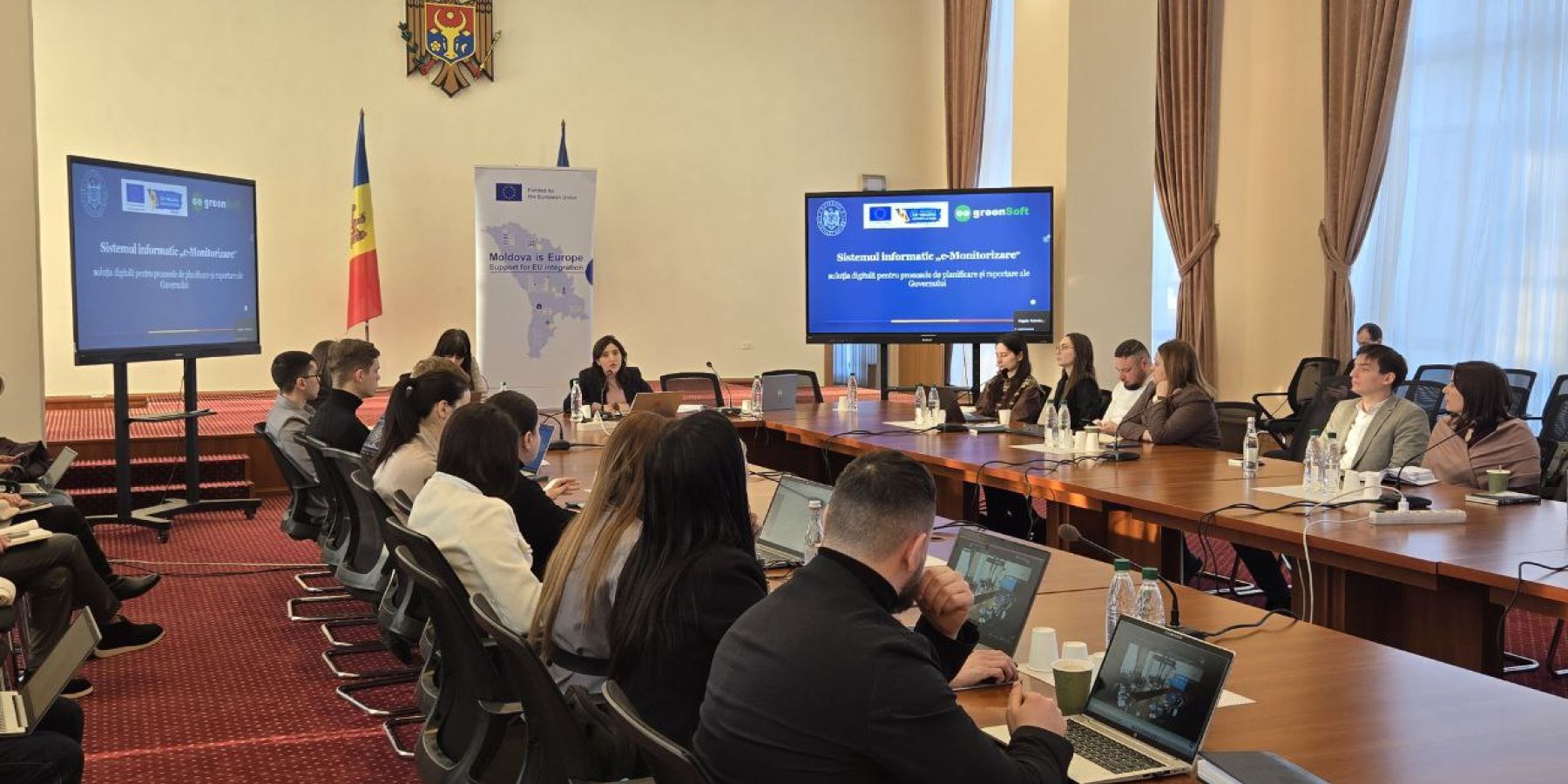
Более 400 государственных служащих прошли обучение по использованию информационной системы «e-Мониторинг»

